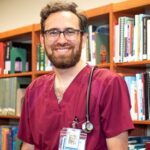Information Box Group
Sonia Anand
MD, PhD
Professor, Division of Cardiology
Associate Chair, Heart and Stroke Foundation / Michael G. DeGroote Chair in Population Health Research; Canada Research Chair in Ethnic Diversity and Cardiovascular Disease (Tier 1); Director, Population Genomics Program
Associate Chair, Equity and Diversity, Department of Medicine
Director, Population Genomics Program, Department of Clinical Epidemiology and Biostatistics
Canada Research Chair in Ethnic Diversity and Cardiovascular Disease
Heart and Stroke Foundation / Michael G. DeGroote Chair in Population Health Research McMaster University
McMaster University’s Dr. Sonia Anand was only 33 years old when she landed the Eli Lilly Canada-May Cohen Chair in Women’s Health. Although her present research involves the environmental and genetic determinants of vascular and peripheral vascular disease in populations of varying ancestral origin, she is most recognized for her research on women’s health issues, particularly in the area of cardiovascular disease. The care and treatment of women’s cardiovascular disease, unique in its latent and non-specific symptoms, must differ from the standard employed for men to be successful, and Dr. Anand’s research is innovative in making this a priority.
As a Professor with the Department of Medicine and a member of the Leadership Council of the Heart and Stroke Foundation of Canada’s Heart Truth campaign, Dr. Anand has helped give women the tools they need to reduce their risk of cardiovascular disease. Studying the differences associated with each gender’s symptomatic experience of heart disease, Dr. Anand aims to clarify the way in which social factors interact with biological factors to impact cardiovascular health.
Dr. Anand is also the Principal Investigator of two large genetic association studies, including the CIHR/HSFO funded EPiDREAM study of 22,000 people from 21 countries. Complementing this research, Dr. Anand teaches clinical epidemiology courses in methodology and cardiovascular disease at McMaster University with the hope of influencing future generations of doctors to be mindful of women’s health matters.
Selected Publications
- Do R, Xie C, Zhang X, Islam S, Bailey S, Rangarajan S, McQueen M, Diaz R, Lisheng L, Wang X, Yusuf S, Engert J, Anand SS. Dietary Intake Modifies the Effect of Chromosome 9p21 Variants on Cardiovascular Disease. PLoS Med 2011 Oct;8(10):e1001106
- Zbuk K, Xie C, Young R, Heydarpour M, Pare G, Davis A, Miller R, Lanktree M, Saleheen D, Danesh J, Yusuf S, Engert J, Hegele R, Anand SS. BRCA2 Variants and Cardiovascular Disease in a Multi-Ethnic Study. BMC Med Genet 2012 July18;13-56
- Anand S, Dagenais G, Mohan V, Diaz R, Probstfield J, Freeman R, Shaw J, Marshall S, Lanas F, Avezum A, Budaj A, Jung H, Desai D, Bosch J, Yusuf S, Gertstein H. Glucose Levels are Associated with Cardiovascular Disease and Death in an International Cohort of Normal Glycemic and Dysglycemic Men and Women: The EpiDREAM Cohort Study. Eur J Cardiovas Prev Cardiol 2012 Aug;19(4):755-64
- Joseph P, Davis A, Miller R, Hill K, McCarthy H, Banerjee A, Chow C, Mente A, Anand SS. Contextual determinants of health behaviours in an Aboriginal community in Canada: Pilot Project. BMC Public Health 2012 Nov 7;12:952
- Joseph P, Pare G, Anand SS. Exploring Gene-Environment Relationships in Cardiovascular Disease. Can J Cardio 2013 Jan;29(1);37-45
- Anand SS. Vasudevan A, Gupta M, Morrison K, Kurpad A, Teo KK, Srinivasan K, On behalf of the START Cohort Study Investigators. Rationale and Design of South Asian Birth Cohort (START): A Canada-India Collaborative Study BMC Public Health 2013, Jan 28; 13:79
- Kreatsoulas C, Anand SS. Menopausal hormone therapy for the primary prevention of chronic conditions. U.S. Preventative Services Task Force recommendation statement. Pol Arch Med Wewn. 2013:123(3): 112-7.
- Kreatsoulas C, Shannon HS, Giacomini M, Velianou JL, Anand SS. Reconstructing Angina: Cardiac Symptoms Are the Same in Women and Men. JAMA Internal Medicine 2013 Apr. 8:1-2.
- Neylon A, Canniffe C, Anand S, Kreatsoulas c, Blake GJ, Sugrue D, McGorrian D. A global perspective on psychosocial risk factors for cardiovascular disease. Prog Cardiovasc Dis. 2013 May-Jun;55(6): 574-81.
- Kalra S, Mercuri M, Anand SS. Measures of body fat in South Asian Adults. Nutr Diabetes 2013 May 27;3:e69
- Chetty T, Damjanovic S, Gerstein H, Singh N, Yusuf S, Anand SS, Sharma A. Metabolic effects of Telmisartan in subjects with abdomen obesity: a prospective randomized control trial. Blood Pressure, 2013; Jun 3
- Mente A, Meyre D, Lanktree M, Heydarpour M, Davis AD, Miller R, Gerstein H, Hegele RA, Yusuf S, Anand SS. Causal Relationship between Adiponectin and Metabolic Traits: A Mendelian Randomization Study in a Multiethnic Population. PLoS One 2013 June 24;8(6): e66808
- Wahi G, Wilson J, Miller R, Anglin R, McDonald S, Morrison KM, Teo KK, Anand SS. Aboriginal birth cohort (ABC): a prospective cohort study of early life determinants of adiposity and associated risk factors among Aboriginal people in Canada. BMC public health. 2013 Jun 25;13(1):608. [Epub ahead of print]
- Shah BR, Victor JC, Chiu M, Tu JV, Anand SS, Austin PC, Manuel DG, Hux JE. Cardiovascular Complications and Mortality After Diabetes Diagnosis for South Asian and Chinese Patients: A population-based cohort study. Diabetes Care 2013 Sep;36(9):2670-6
- Anand SS, Meyre D, Pare G, Bailey S, Xie C, Zhang X, Montpetit A, Desai D, Bosch J, Mohan V, Diaz R, McQueen M, Cordell H, Keavney B, Yusuf S, Gaudet D, Gerstein H, Engert JC, on behalf of the EpiDREAM Genetics Investigators. Genetic Information and the Prediction of incident Type 2 Diabetes in a High-Risk Multi-Ethnic population: The EpiDREAM Genetic Study. Diabetes Care 2013 Sep;36(9):2836-42
- Oliveira A, Kalra S, Wahi G, McDonald S, Desai D, Wilson J, Jacobs L, Smoke S, Hill P, Hill K, Morrison K, Teo K, Miller R, Anand SS. Maternal and Newborn Health Profile in an Aboriginal Community in Canada. Journal of Obstetrics and Gynaecology
- Wahi G, Anand SS. Race/Ethnicity, obesity and related cardio-metabolic risk factors: A life-course perspective. Curr Cardiovasc Risk Rep (In Press Aug 2013)
Citations for Dr. Anand on PubMed
Research Interests: Environmental and genetic determinants of vascular disease in populations of varying ancestral origin; women and cardiovascular disease.

Sonia Anand
MD, PhD
Professor, Division of Cardiology
Associate Chair, Heart and Stroke Foundation / Michael G. DeGroote Chair in Population Health Research; Canada Research Chair in Ethnic Diversity and Cardiovascular Disease (Tier 1); Director, Population Genomics Program
David Armstrong
MB BChir, FRCPC, FRCP(UK), FACG, AGAF
Professor, Division of Gastroenterology
Douglas Family Chair in Nutrition Research

David Armstrong
MB BChir, FRCPC, FRCP(UK), FACG, AGAF
Professor, Division of Gastroenterology
Douglas Family Chair in Nutrition Research
Donald Arnold
MD, MSc, FRCPC
Professor, Division of Hematology & Thromboembolism
John G. Kelton Chair in Translational Research; Chair, Research

Donald Arnold
MD, MSc, FRCPC
Professor, Division of Hematology & Thromboembolism
John G. Kelton Chair in Translational Research; Chair, Research
Ali Ashkar
DVM, PhD
Professor, Division of Clinical Immunology & Allergy
Canada Research Chair in Innate Immunity and Natural Killer Cell Function (Tier 1)
Research Interests: Study of innate immunity to viral infections and cancer, experimental models of human specific diseases

Ali Ashkar
DVM, PhD
Professor, Division of Clinical Immunology & Allergy
Canada Research Chair in Innate Immunity and Natural Killer Cell Function (Tier 1)
Richard Austin
PhD
Professor, Division of Nephrology
Amgen Canada Research Chair in Nephrology

Richard Austin
PhD
Professor, Division of Nephrology
Amgen Canada Research Chair in Nephrology
Steven Baker
MD, FRCPC
Associate Professor, Physical Medicine & Rehabilitation
Hamilton Hospitals Assessment Centre Endowed Professorship in Neuromuscular Disease; Neuromuscular Fellowship Program Director

Steven Baker
MD, FRCPC
Associate Professor, Physical Medicine & Rehabilitation
Hamilton Hospitals Assessment Centre Endowed Professorship in Neuromuscular Disease; Neuromuscular Fellowship Program Director
Shannon Bates
MDCM, MSc, FRCPC
Professor, Division of Hematology & Thromboembolism
Eli Lilly Canada/May Cohen Chair in Women's Health

Shannon Bates
MDCM, MSc, FRCPC
Professor, Division of Hematology & Thromboembolism
Eli Lilly Canada/May Cohen Chair in Women's Health
Premysl Bercik
MD, PhD
Professor, Division of Gastroenterology
Richard Hunt-AstraZeneca Chair in Gastroenterology

Premysl Bercik
MD, PhD
Professor, Division of Gastroenterology
Richard Hunt-AstraZeneca Chair in Gastroenterology
Dawn Bowdish
PhD
Professor, Division of Respirology
Executive Director, Firestone Institute for Respiratory Health;
Canada Research Chair in Aging and Immunity (Tier 2)
Research Interests: Immunosenescence, macrophage biology, macrophage receptor expression, scavenger receptor and phagocytic receptor function and signalling, aging and immunity, innate immunity & host defence, bacterial colonization and infections (e.g. Streptococcus pneumoniae), animal models of pneumonia and post-influenza pneumonia, microbiome of the upper respiratory tract, pathogen, commensals of the upper respiratory tract

Dawn Bowdish
PhD
Professor, Division of Respirology
Executive Director, Firestone Institute for Respiratory Health;
Canada Research Chair in Aging and Immunity (Tier 2)
Jonathan Bramson
PhD
Vice-Dean, Research
Professor, Division of Hematology & Thromboembolism; John Bienenstock Chair in Molecular Medicine
Research Interests: Immunology, Oncology, Translational Research, Genetic Engineering, Immunoassays/Immune Monitoring, First-in-human clinical trials

Jonathan Bramson
PhD
Vice-Dean, Research
Professor, Division of Hematology & Thromboembolism; John Bienenstock Chair in Molecular Medicine
Alberto Caminero Fernandez
MD
Assistant Professor, Division of Gastroenterology
Douglas Family Chair in Gastroenterology Research

Alberto Caminero Fernandez
MD
Assistant Professor, Division of Gastroenterology
Douglas Family Chair in Gastroenterology Research
Stephen Collins
MBBS, FRCPC, FRSC
Professor, Division of Gastroenterology
Farncombe Family Chair in Digestive Health Research, Director, Farncombe Family Digestive Health Research Institute

Stephen Collins
MBBS, FRCPC, FRSC
Professor, Division of Gastroenterology
Farncombe Family Chair in Digestive Health Research, Director, Farncombe Family Digestive Health Research Institute
Mark Crowther
MD, MSc, FRCPC
Professor; Chair, Department of Medicine
Leo Pharma Chair in Thromboembolism Research; Clinical Epidemiology and Biostatistics, Pathology and Molecular Medicine associate member
Education and Professional Standing
MD, University of Western Ontario, 1990
FRCPC Internal Medicine, 1994
FRCPC Hematology, 1995
MSc Health Research Methodology, 1998
Fellow of the Royal Society of Canada (FRSC), 2017
Dr Crowther has more than 400 peer reviewed publications, was inducted into the Royal Society of Canada in 2017, and received the 2017 International Society of Thrombosis and Haemostasis BACH Investigator Recognition Award. He was one of 14 scientists from the Michael G. DeGroote School of Medicine at McMaster University cited by Clarivate Analytics on its Highly Cited Researchers list (formerly known as Thomson Reuter’s annual publication of The World’s Most Influential Scientific Minds).
[View Dr. Crowther’s citations on PubMed]
Research Interests: Exploring ways of improving the way that we use our current anticoagulant drugs, including exploring established and novel interventions to mitigate bleeding and anticoagulant drugs in high-risk patient populations; Developing systematic reviews of key questions in hematology and thrombosis and basing guidelines on those reviews.

Mark Crowther
MD, MSc, FRCPC
Professor; Chair, Department of Medicine
Leo Pharma Chair in Thromboembolism Research; Clinical Epidemiology and Biostatistics, Pathology and Molecular Medicine associate member
Judah Denburg
MD, FRCPC
Professor, Division of Clinical Immunology & Allergy
William J. Walsh Chair in Medicine

Judah Denburg
MD, FRCPC
Professor, Division of Clinical Immunology & Allergy
William J. Walsh Chair in Medicine
James Douketis
MD, FRCPC
Professor, Divisions of General Internal Medicine and Hematology & Thromboembolism
David Braley and Nancy Gordon Chair in Thromboembolic Disease; Associate Director, Clinical Teaching Unit, St. Joseph's Hospital

James Douketis
MD, FRCPC
Professor, Divisions of General Internal Medicine and Hematology & Thromboembolism
David Braley and Nancy Gordon Chair in Thromboembolic Disease; Associate Director, Clinical Teaching Unit, St. Joseph's Hospital
John Eikelboom
MBBS, MSc, FRCPC
Professor, Division of Hematology & Thromboembolism
Jack Hirsh/PHRI Chair in Thrombosis and Atherosclerosis Research; Canada Research Chair in Cardiovascular Medicine from the Canadian Institutes for Health Research
Dr John Eikelboom is an associate professor in the Department of Medicine at McMaster University in Hamilton, Ontario . After earning his MBBS degree at the University of Western Australia Medical School, Australia, he completed training in Internal Medicine and Haematology at Royal Perth Hospital, Australia and trained in Epidemiology and Thrombosis Medicine at McMaster University . He holds a Canada Research Chair in Cardiovascular Medicine from the Canadian Institutes for Health Research. Dr. Eikelboom’s current research focuses on variable response to antiplatelet therapy, antithrombotic therapy in atrial fibrillation, and mechanisms and prognosis of bleeding. He has published more than 150 peer-reviewed papers. He is a member of the Editorial Board for Stroke and on the Advisory Board for the Journal of Thrombosis and Haemostasis.
Research Interests: Mechanisms and genetic determinants of antiplatelet drug resistance and improving its diagnosis and treatment.

John Eikelboom
MBBS, MSc, FRCPC
Professor, Division of Hematology & Thromboembolism
Jack Hirsh/PHRI Chair in Thrombosis and Atherosclerosis Research; Canada Research Chair in Cardiovascular Medicine from the Canadian Institutes for Health Research
Hertzel Gerstein
MD, MSc, FRCPC
Professor, Division of Endocrinology & Metabolism
Population Health Institute Chair in Diabetes Research and Care; Senior Advisor - Centre for Metabolism, Obesity and Diabetes Research

Hertzel Gerstein
MD, MSc, FRCPC
Professor, Division of Endocrinology & Metabolism
Population Health Institute Chair in Diabetes Research and Care; Senior Advisor - Centre for Metabolism, Obesity and Diabetes Research
Jeffrey Healey
MD, MSc
Professor; Director, Division of Cardiology
Salim Yusuf Chair in Cardiology; Director of Arrhythmia Services, Hamilton General Hospital
Research Interests: Dr. Healey’s research interest is focused on atrial fibrillation and stroke prevention. He was the lead author of the ASSERT trial which demonstrated the increased stroke risk associated with sub-clinical atrial fibrillation detected by pacemakers. He was also lead author of the SIMPLE trial which demonstrated that implantable defibrillators could be safely inserted without performing intra-operative defibrillation testing.

Jeffrey Healey
MD, MSc
Professor; Director, Division of Cardiology
Salim Yusuf Chair in Cardiology; Director of Arrhythmia Services, Hamilton General Hospital
Jeremy Hirota
PhD
Associate Professor, Division of Respirology
Canada Research Chair in Respiratory Mucosal Immunology (Tier 2)
Faculty
Research Interests: Respiratory mucosal immunology, environmental exposures, asthma, chronic obstructive pulmonary disease, cystic fibrosis, airway epithelial cells, ATP Binding Cassette (ABC) Transporters commercialization of research, science communication.

Jeremy Hirota
PhD
Associate Professor, Division of Respirology
Canada Research Chair in Respiratory Mucosal Immunology (Tier 2)
Faculty
Alexander Hynes
PhD
Associate Professor, Division of Gastroenterology
Farncombe Family Chair in Phage Biology
Dr. Hynes obtained his BSc from the University of Calgary, and has spent the years since working on bacteriophages in one form or another – first, through a PhD at Memorial University of Newfoundland with Dr. Andrew S. Lang, and then later as a Postdoc with Dr Sylvain Moineau, at Université Laval. As the Farncombe Family Chair in Phage Biology, he brings this expertise to complement the exciting microbiome research that is already a signature of the institute.

Alexander Hynes
PhD
Associate Professor, Division of Gastroenterology
Farncombe Family Chair in Phage Biology
Sanjit Jolly
BSc, MD, FRCPS
Professor, Division of Cardiology
Stuart Connolly-PHRI Chair in Cardiovascular Research

Sanjit Jolly
BSc, MD, FRCPS
Professor, Division of Cardiology
Stuart Connolly-PHRI Chair in Cardiovascular Research
Nader Khalidi
MD, FRCPC
Professor; Director, Division of Rheumatology
AbbVie Chair in Education in Rheumatology, Vasculitis Fellowship Program Director, Scleroderma Fellowship Program Director

Nader Khalidi
MD, FRCPC
Professor; Director, Division of Rheumatology
AbbVie Chair in Education in Rheumatology, Vasculitis Fellowship Program Director, Scleroderma Fellowship Program Director
Martin Kolb
MD, PhD
Professor
Jack Gauldie Boehringer Ingelheim Chair in Interstitial Lung Disease; Research Director, Firestone Institute for Respiratory Health
Dr. Martin Kolb is an associate professor of medicine and director of research for the Firestone Institute for Respiratory Health at St. Joseph’s Healthcare. He obtained his MD from the University of Würzburg, Germany in 1991, where he also completed a PhD equivalent in Experimental Respirology in 2003. He trained with Dr. Jack Gauldie at McMaster University from 1999-2001 and they closely collaborate since then on basic and translational projects in pulmonary fibrosis. Dr. Kolb runs a specialty clinic for interstitial lung diseases and pulmonary fibrosis at St. Joseph’s Healthcare and is involved as Principal Investigator and Steering Committee member in several multi-center trials for lung fibrosis. Dr. Kolb has published more than 80 scientific articles and is Deputy Editor for Respirology and on the Editorial Board of the American Journal of Respiratory and Critical Care Medicine.
Research
Dr. Kolb’s major research area is focused on mechanisms of lung injury, repair and fibrosis, particularly in idiopathic pulmonary fibrosis (IPF). He has a strong interest in growth factor biology (e.g. TGF? and IL-1), extracellular matrix, and mesenchymal cell progenitors (mesenchymal stem cells and fibrocytes). In his lab he uses a variety of animal models to study disease mechanisms and also the efficacy of novel drugs in the preclinical setting. Dr. Kolb leads activities in biomarker development for lung fibrosis and he participates as Principal Investigator and Steering Committee members in numerous clinical trials on interstitial lung disease. Dr. Kolb has over 100 peer-reviewed publications in journals such as New England Journal of Medicine, Journal of Clinical Investigation, American Journal of Pathology, American Journal of Respiratory and Critical Care Medicine, Journal of Immunology, European Respiratory Journal and many others. He is/was funded by CIHR, NIH, CFI, OTS and different Pharma companies over the years. He has received career awards from the Parker B. Francis Families Foundation, the Department of Medicine at McMaster and the New Investigator Award from the Canadian Institute for Health Research.
Clinical Activities
Dr. Kolb looks after several hundred patients with interstitial lung disease in his specialty clinic and also practices in General Respirology. He is medical staff at St. Joseph’s Healthcare Hamilton for Respirology and General Internal Medicine. Clinic bookings can be made through extension x35003.
Current standing
- Associate professor, Division of Respirology, Department of Medicine and Pathology & Molecular Medicine; Reseach director; Firestone Institute for Respiratory Health, St. Joseph’s Healthcare
- Specialty clinic for interstitial lung disease and lung fibrosis
- Inpatient service for general internal medicine, respirology and ICU
- Consulting service
Education and professional standing
- M.D., University of Würzburg, Germany, 1991
- Residency, Anatomical Pathology, University Erlangen/Nürnberg
- Residency, General Internal and Respiratory Medicine, University of Würzburg, Germany, 1993
- Postdoctoral research fellowship in pulmonary fibrosis with Dr. Jack Gauldie, McMaster University, 1999
- Habilitation for Internal Medicine (PhD equivalent ), Germany, 2003
- Assistant Professor, Department of Pathology, McMaster, 2003
- Department of Medicine and the Firestone Institute for Respiratory Health, 2004
- Research Director, Firestone Institute for Respiratory Health, 2009
- Director, Division of Respirology, Department of Medicine, McMaster University 2013
Selected publications
- Richeldi L, du Bois RM, Raghu G, Azuma A, Brown KK, Costabel U, Cottin V, Flaherty KR, Hansell DM, Inoue Y, Kim DS, Kolb M, Nicholson AG, Noble PW, Selman M, Taniguchi H, Brun M, Le Maulf F, Girard M, Stowasser S, Schlenker-Herceg R, Disse B, Collard HR. Efficacy and Safety of Nintedanib in Idiopathic Pulmonary Fibrosis. N Engl J Med. 2014 May 29;370(22):2071-82.
- Bellaye PS, Wettstein G, Burgy O, Besnard V, Joannes A, Colas J, Causse S, Marchal-Somme J, Fabre A, Crestani B, Kolb MRJ, Gauldie J, Camus P, Garrido C, Bonniaud P. The small heat shock protein ?B-crystallin is essential for the nuclear localization of Smad4: impact on pulmonary fibrosis. J Pathol 2014; 232: 458–472.
- Wettstein G, Bellaye PS, Kolb MRJ, Hammann A, Crestani B, Soler P, Marchal-Somme J, Hazoume A, Gauldie J, Gunther A, Micheau O, Gleave M, Camus P, Garrido C, Bonniaud P. Inhibition of HSP27 blocks fibrosis development and EMT features by promoting snail degradation. FASEB J. 2013 Apr;27(4):1549-60
- Hanumegowda C, Farkas L, Kolb MRJ. Angiogenesis in Pulmonary Fibrosis-Too much or not enough? Chest 2012 July 1;142(1):200-7
- Farkas L, Gauldie J, Voelkel N F, Kolb MRJ. Pulmonary Hypertension and Idiopathic Pulmonary Fibrosis-A Tale of Angiogenesis, Apoptosis and Growth Factors. Am J Respir Cell Mol Biol. 2011 Jul;45(1):1-15
- Farkas L, Ask K, Möller A, Farkas D, Margetts PJ, Gauldie J, Inman M, Kolb MRJ. VEGF-mediated angiogenesis ameliorates pulmonary hypertension in an animal model of lung fibrosis. J Clin Invest 2009;119(5):1298-311
- Möller A, Gilpin SE, Ask K, Cox G, Cook DJ, Gauldie J, Margetts PJ, Farkas L, Dobranowski J, Boylan C, O’Byrne PM, Strieter RM, Kolb MRJ. Circulating Fibrocytes are an indicator for poor prognosis in Idiopathic Pulmonary Fibrosis. Am J Resp Crit Care Med 2009; 179(7):588-94

Martin Kolb
MD, PhD
Professor
Jack Gauldie Boehringer Ingelheim Chair in Interstitial Lung Disease; Research Director, Firestone Institute for Respiratory Health
Mark Larché
PhD
Professor Emeritus
Research Interests: Asthma/allergy, rheumatoid arthritis, scleroderma, and graft versus host disease
Arthur Lau
MD, FRCPC
Associate Professor, Division of Rheumatology
Actavis Chair in Rheumatology for Better Bone Health

Arthur Lau
MD, FRCPC
Associate Professor, Division of Rheumatology
Actavis Chair in Rheumatology for Better Bone Health
Patricia Liaw
BSc, MSc, PhD
Professor, Division of Hematology & Thromboembolism
Jack Hirsh-Clive Kearon Chair in Thrombosis

Patricia Liaw
BSc, MSc, PhD
Professor, Division of Hematology & Thromboembolism
Jack Hirsh-Clive Kearon Chair in Thrombosis
Davide Matino
MD, MSc
Associate Professor, Division of Hematology & Thromboembolism
Bayer Chair for Clinical Epidemiology Research in Bleeding Disorders

Davide Matino
MD, MSc
Associate Professor, Division of Hematology & Thromboembolism
Bayer Chair for Clinical Epidemiology Research in Bleeding Disorders
Shamir Mehta
MD, MSc, FRCPC
Professor, Division of Cardiology
Douglas Holder-PHRI Chair in Interventional Cardiology; Director, Interventional Cardiology, Hamilton Health Sciences; Interventional Cardiology AFC Fellowship Director

Shamir Mehta
MD, MSc, FRCPC
Professor, Division of Cardiology
Douglas Holder-PHRI Chair in Interventional Cardiology; Director, Interventional Cardiology, Hamilton Health Sciences; Interventional Cardiology AFC Fellowship Director
Dominik Mertz
MD, MSc, FMH(CH)
Professor, Division of Infectious Diseases
Infectious Diseases Division Director;
Michael G. DeGroote Chair in Infectious Diseases;
IPAC Fellowship Director;
Medical Director, Infection Control, Hamilton Health Sciences
Advanced Academic Infectious Disease Fellowship Director

Dominik Mertz
MD, MSc, FMH(CH)
Professor, Division of Infectious Diseases
Infectious Diseases Division Director;
Michael G. DeGroote Chair in Infectious Diseases;
IPAC Fellowship Director;
Medical Director, Infection Control, Hamilton Health Sciences
Advanced Academic Infectious Disease Fellowship Director
Paul Moayyedi
BSc, MB ChB, PhD, MPH, FRCP (London), FRCPC, FACG, AGAF
Professor, Division of Gastroenterology
Audrey Campbell Chair in Ulcerative Colitis Research

Paul Moayyedi
BSc, MB ChB, PhD, MPH, FRCP (London), FRCPC, FACG, AGAF
Professor, Division of Gastroenterology
Audrey Campbell Chair in Ulcerative Colitis Research
Manali Mukherjee
PhD
Assistant Professor, Division of Respirology
AstraZeneca Chair in Respiratory Diseases

Manali Mukherjee
PhD
Assistant Professor, Division of Respirology
AstraZeneca Chair in Respiratory Diseases
Parameswaran Nair
MD, PhD, FRCP, FRCPC
Professor, Division of Respirology
Frederick E. Hargreave Teva Innovation Chair in Airway Diseases; Staff Respirologist, Firestone Institute for Respiratory Health; Director, Clinical Research Airway Diseases Fellowship Program
After obtaining his medical degree (MBBS) from the University of Kerala in India in 1988, Dr Nair trained in general and respiratory medicine at the University of Kerala Medical College Hospital in Trivandrum (with an MD for thesis on exercise-induced bronchoconstriction, Diploma in Tuberculosis, and National Board Certification in Respiratory Medicine (DNB), and Royal Sunderland and Royal Sussex County Hospitals in England (MRCP in General Medicine, 1996). He joined the faculty of Health Sciences of McMaster University in 2004 after training in Health Research Methodology, a clinical research fellowship and a PhD under the supervision of Professors Frederick Hargreave and Paul O’Byrne. He was elected a Member of the National Academy of Medical Sciences of India in 1993, Fellow of the College of Chest Physicians in 1999, Fellow of the Royal College of Physicians of London in 2003 and Fellow of the Royal College of Physicians of Canada in 2009 with certification in Internal Medicine and Respirology. He was awarded the Ann Woolcock Prize in 2005 by the American Thoracic Society and the Bastable-Potts Prize in 2016 by the Asthma Society of Canada for excellence in asthma research.
His laboratory characterizes the types of bronchitis in airway diseases using measurements in sputum, develops novel biomarkers in sputum, identifies mechanisms of bronchitis and explores novel targeted therapies of bronchitis. He directs the AllerGen National Centre of Excellence Clinical Investigators Consortium for Severe Asthma and is a co-investigator of the Canadian Respiratory Research Network. He was supported by the Canada Research Chair program from 2005-2015.
Clinical Interests
At the Firestone Institute for Respiratory Health at St. Joseph’s Healthcare Hamilton, he looks after patients with complex obstructive airway diseases, severe asthma, recurrent bronchitis, and eosinophilic lung disorders. These unique multi-disciplinary clinics, in collaboration with Dr Mike Trus, Dr Nader Khalidi, and Dr Gerry Cox, provide these patients access to biologics, molecular microbiology and bronchial thermoplasty and opportunities to participate in research programs.
Research Interests: Developing and applying non-invasive measurements of airway inflammation in the treatment of severe asthma and COPD.

Parameswaran Nair
MD, PhD, FRCP, FRCPC
Professor, Division of Respirology
Frederick E. Hargreave Teva Innovation Chair in Airway Diseases; Staff Respirologist, Firestone Institute for Respiratory Health; Director, Clinical Research Airway Diseases Fellowship Program
John Neary
MD, FRCPC
Associate Professor,
Boris Family Chair in Education and Internal Medicine

John Neary
MD, FRCPC
Associate Professor,
Boris Family Chair in Education and Internal Medicine
Akbar Panju
MB ChB, FRCP (Edin), FRCP (Glasg)
Professor, Division of General Internal Medicine
Medard DeGroote Chair in Medicine

Akbar Panju
MB ChB, FRCP (Edin), FRCP (Glasg)
Professor, Division of General Internal Medicine
Medard DeGroote Chair in Medicine
Alexandra Papaioannou
BScN, MD, MSc, FRCPC, FACP
Professor, Divisions of Geriatric Medicine and Rheumatology
Executive Director of the GERAS Centre, Eli Lilly Canada Chair in Osteoporosis, Chair, Regional Geriatric Program (central); Canada Research Chair in Geriatric Medicine and Healthy Aging (Tier 1)
Dr. Alexandra Papaioannou is a professor in the Department of Medicine and a geriatrician at Hamilton Health Sciences. She is Executive Director of the Geriatric Education and Research in Aging Sciences (GERAS) Centre at Hamilton Health Sciences. She holds an Eli Lilly Research Chair at McMaster University. She has a joint appointment in the Division of Rheumatology, and is past Director, Division of Geriatric Medicine, McMaster. Dr Papaioannou is an Associate Member in the Department of Health Research Methods, Evidence and Impact, and a faculty member in the Medical Sciences, Physiology & Pharmacology Graduate Studies Program. She is a member of the Gilbrea Centre Advisory Board, and McMaster Institute for Research on Aging (MIRA). She is past chair of the Scientific Advisory Council of Osteoporosis Canada (OC) and past Chair of the Board. She is a member of the Scientific Advisors of Osteoporosis Canada, and the International Osteoporosis Foundation. Dr. Papaioannou was lead author on the Osteoporosis Canada Guidelines published in Canadian Medical Association Journal (CMAJ) October 2010 and 2015. Dr. Papaioannou was awarded an Ontario Career Scientist Award. She is author of more than 300 peer reviewed publications with a focus on frailty, falls and fractures. She is the project lead for the Ontario Osteoporosis Strategy for Fracture Prevention in Long-term Care, and Co-Director of the Hamilton Canadian Multi-Centre Osteoporosis Study (CaMos).
Dr. Papaioannou has received a number of awards including the Ronald Cape Distinguished Service Award, to recognize an individual who has made an outstanding contribution to the health care of older adults in Canada, the Service Award for Geriatric Excellence (SAGE), Category: Executive/Senior Leadership, awarded by the Regional Geriatric Program central (RGPc), the McMaster Department of Medicine Teaching Award for Postgraduate Teaching, the Ontario College of Family Physicians Certificate of Recognition for her contributions to primary care, the YWCA Hamilton Women of Distinction Award – Health & Wellness, and the Lindy Fraser Award from Osteoporosis Canada.

Alexandra Papaioannou
BScN, MD, MSc, FRCPC, FACP
Professor, Divisions of Geriatric Medicine and Rheumatology
Executive Director of the GERAS Centre, Eli Lilly Canada Chair in Osteoporosis, Chair, Regional Geriatric Program (central); Canada Research Chair in Geriatric Medicine and Healthy Aging (Tier 1)
Ameen Patel
MB, FRCP(C), MACP, FRCP(Edin.), FRCP(Glas.)
Professor; Director, Division of Education & Innovation (DEI)

Ameen Patel
MB, FRCP(C), MACP, FRCP(Edin.), FRCP(Glas.)
Professor; Director, Division of Education & Innovation (DEI)
Demetrios Sahlas
MSc, MD, FRCP(C), DABPN
Professor, Division of Neurology
Michael G. DeGooote Professorship in Stroke Management

Demetrios Sahlas
MSc, MD, FRCP(C), DABPN
Professor, Division of Neurology
Michael G. DeGooote Professorship in Stroke Management
Mukul Sharma
MD, MSc
Professor, Division of Neurology
Michael G. DeGroote Chair in Stroke Prevention

Mukul Sharma
MD, MSc
Professor, Division of Neurology
Michael G. DeGroote Chair in Stroke Prevention
Ashkan Shoamanesh
MD, FRCPC
Associate Professor, Division of Neurology
Marta and Owen Boris Chair in Stroke Research and Care; Director of Hemorrhagic Stroke Research Program and Investigator, Stroke and Cognition Program at PHRI

Ashkan Shoamanesh
MD, FRCPC
Associate Professor, Division of Neurology
Marta and Owen Boris Chair in Stroke Research and Care; Director of Hemorrhagic Stroke Research Program and Investigator, Stroke and Cognition Program at PHRI
Joye St. Onge
MD, MEd, FRCPC
Associate Professor; Director, Division of Geriatric Medicine
St. Peter's/McMaster Chair in Aging
Geriatric Medicine Residency Program Director

Joye St. Onge
MD, MEd, FRCPC
Associate Professor; Director, Division of Geriatric Medicine
St. Peter's/McMaster Chair in Aging
Geriatric Medicine Residency Program Director
Gregory Steinberg
PhD
Professor, Division of Endocrinology & Metabolism
J. Bruce Duncan Chair in Metabolic Diseases; Canada Research Chair in Metabolism, Obesity and Type 2 Diabetes (Tier 2); Co-Director - Centre for Metabolism, Obesity & Diabetes Research
Dr. Steinberg obtained his PhD in 2002 from the University of Guelph. His research thesis was conducted in the laboratory of Professor David Dyck where he studied the regulation of metabolism in muscle by the hormone leptin. From 2002-2006, Dr. Steinberg conducted Postdoctoral Research in the laboratory of Professor Bruce Kemp at St. Vincent’s Institute of Medical Research in Melbourne, Australia. During this time he gained insight into protein biochemistry and molecular biology with an emphasis on the metabolic stress sensing protein kinase AMPK. In 2006, Dr. Steinberg became Head of the Metabolism Unit at St. Vincent’s Institute of Medical Research and a Senior Fellow of the National Health and Medical Research Council of Australia. In 2009, Dr. Steinberg returned to Canada and joined the Department of Medicine, Endocrinology and Metabolism Division as an Associate Professor and Canada Research Chair. His laboratory is currently funded by grants from CFI, CIHR, CDA and NSERC.

Gregory Steinberg
PhD
Professor, Division of Endocrinology & Metabolism
J. Bruce Duncan Chair in Metabolic Diseases; Canada Research Chair in Metabolism, Obesity and Type 2 Diabetes (Tier 2); Co-Director - Centre for Metabolism, Obesity & Diabetes Research
Michael Surette
PhD
Professor, Division of Gastroenterology
Canada Research Chair in Interdisciplinary Microbiome Research (Tier 2)
Michael Surette, a professor of medicine and one of Canada’s top microbiologists, is shedding new light on why some microbes keep us healthy while others cause illness, what role our microbes play in chronic diseases, how the microbiome develops and changes across the lifespan, and how changes with age affect susceptibility to disease.
While it is often stated that most of the microbiome is not accessible by laboratory culturing methods, Surette’s lab has challenged this assumption. His pioneering approach combining culture-enriched molecular profiling with state-of-the-art genome sequencing allows his laboratory to routinely grow more than 99.9% of bacterial populations, and typically recovers 2-3 times the diversity of bacteria than recovered by molecular profiling alone.
These approaches are being used to investigate specific diseases such as cystic fibrosis, asthma, ulcerative colitis, and irritable bowel syndrome, and to address fundamental questions about microbe-microbe/host interactions. Exploiting beneficial properties of the human microbiota holds promise for the development of new microbiome-derived therapies for the treatment of a wide range of conditions impacted by the health of our microbiota.

Michael Surette
PhD
Professor, Division of Gastroenterology
Canada Research Chair in Interdisciplinary Microbiome Research (Tier 2)
Sarah Svenningsen
PhD
Assistant Professor, Division of Respirology
Canada Research Chair in Translational Pulmonary Imaging (Tier 2)

Sarah Svenningsen
PhD
Assistant Professor, Division of Respirology
Canada Research Chair in Translational Pulmonary Imaging (Tier 2)
John Turnbull
MD, PhD, FRCPC
Professor, Division of Neurology
Andrew Bruce Douglas Chair in Neurology

John Turnbull
MD, PhD, FRCPC
Professor, Division of Neurology
Andrew Bruce Douglas Chair in Neurology
Elena Verdu
MD, PhD
Professor, Division of Gastroenterology
Canada Research Chair in Microbial Therapeutics and Nutrition in Gastroenterology (Tier 1);
Canada Research Chair in Nutrition, Inflammation and Microbiota (Tier 2)
Faculty

Elena Verdu
MD, PhD
Professor, Division of Gastroenterology
Canada Research Chair in Microbial Therapeutics and Nutrition in Gastroenterology (Tier 1);
Canada Research Chair in Nutrition, Inflammation and Microbiota (Tier 2)
Faculty
Irwin Walker
MBBS, FRACP
Professor Emeritus, Division of Hematology & Thromboembolism
Joseph E. DesRoches Chair in Bone Marrow Transplantation

Irwin Walker
MBBS, FRACP
Professor Emeritus, Division of Hematology & Thromboembolism
Joseph E. DesRoches Chair in Bone Marrow Transplantation
Susan Waserman
MSc, MD, FRCPC
Professor; Director, Division of Clinical Immunology & Allergy
Schroeder Chair in Allergy and Immunology Research
Dr. Susan Waserman obtained her MSc and medical degree from McGill University. She specialized in internal medicine with subspecialty training in allergy and clinical immunology, completing fellowships at the Meakins Christie Laboratories at McGill University in Montreal, and at McMaster University.
She is a past president of the Canadian and Ontario Societies of Allergy and Clinical Immunology, and president of the Canadian Allergy, Asthma and Immunology Foundation. Her activities include continuing medical education for physicians, allied health professionals and the community, as well as developing practice guidelines in areas such as anaphylaxis, hereditary angioedema, urticaria and immunotherapy.
Director, Division of Clinical Immunology and Allergy, Department of Medicine
Director of the Adverse Reactions Clinic, Firestone Institute of Respiratory Health
Staff physician, Hamilton Health Sciences
Research Interests: Clinical trials in a variety of therapeutic areas related to allergy, including rhinitis, asthma, as well as determinants of allergic reactivity in peanut allergy

Susan Waserman
MSc, MD, FRCPC
Professor; Director, Division of Clinical Immunology & Allergy
Schroeder Chair in Allergy and Immunology Research
Jeffrey Weitz
MD, FRCPC, FACP, FCCP
Professor, Division of Hematology & Thromboembolism
Heart and Stroke Foundation / J. Fraser Mustard Chair in Cardiovascular Research; Executive Director, Thrombosis & Atherosclerosis Research Institute
Dr. Weitz is Professor of Medicine and Biochemistry and Biomedical Sciences at McMaster University and Executive Director of the Thrombosis and Atherosclerosis Research Institute. Board Certified in Internal Medicine, Hematology and Medical Oncology, Dr. Weitz focuses his clinical practice on patients with thrombotic disorders. His research spans the spectrum from basic studies in the biochemistry of blood coagulation and fibrinolysis to animal models of thrombosis and on to clinical trials of antithrombotic therapy. The breadth of his work is highlighted by his over 500 publications in journals as diverse as the Journal of Clinical Investigation, Journal of Biological Chemistry, Biochemistry, Circulation, Blood, Annals of Internal Medicine, New England Journal of Medicine and Lancet, and 60 book chapters. The recipient of numerous awards, Dr. Weitz is a Fellow of the American Heart Association, the Royal Society of Canada and the Canadian Academy of Health Sciences.
By focusing on the basic mechanisms by which anticoagulants (blood thinners) and thrombolytic agents (clot digesting drugs) work, Dr. Weitz has opened new avenues of investigation. His demonstration that thrombin bound to fibrin is resistant to inactivation by available anticoagulants stimulated the development of new drugs, some of which are already being used in clinical practice. Through other research, Dr. Weitz has provided an explanation for the puzzling clinical observation that the clot digesting drug, tissue-type plasminogen activator or t-PA, produces more bleeding than was originally anticipated. This work has paved the way for new drugs that may be safer than t-PA.
Dr. Weitz is involved in clinical trials examining optimal methods for prevention, diagnosis and treatment of clotting disorders. He also is an active participant in the education of medical students, residents, and postdoctoral fellows. In addition, he coordinates a graduate course in medical sciences and his laboratory is a fertile training ground for graduate students and postdoctoral fellows in medical sciences and bioengineering.

Jeffrey Weitz
MD, FRCPC, FACP, FCCP
Professor, Division of Hematology & Thromboembolism
Heart and Stroke Foundation / J. Fraser Mustard Chair in Cardiovascular Research; Executive Director, Thrombosis & Atherosclerosis Research Institute
Geoff Werstuck
PhD
Professor, Division of Hematology & Thromboembolism
ISTH-McMaster Chair in Thrombosis and Hemostasis
Our research is concentrated upon understanding why people with diabetes mellitus are predisposed to cardiovascular disease.
The last few decades have witnessed a dramatic, worldwide increase in the prevalence of diabetes mellitus. Complications associated with diabetes make it a leading cause of blindness, renal failure and lower limb amputations in adults as well as an important, independent risk factor for atherosclerotic cardiovascular disease (CVD). In fact, CVD accounts for over 65% of diabetic mortality. The treatment and prevention of diabetic complications such as CVD is currently limited by our lack of understanding of the mechanisms by which diabetes promotes atherosclerosis – the underlying cause of CVD.

Geoff Werstuck
PhD
Professor, Division of Hematology & Thromboembolism
ISTH-McMaster Chair in Thrombosis and Hemostasis
Salim Yusuf
MBBS, DPhil
Distinguished Professor , Division of Cardiology
Heart and Stroke Foundation / Marion W. Burke Chair in Cardiovascular Disease; Executive Director, Population Health Research Institute (PHRI); Chief Scientist, Hamilton Health Sciences
Research Interests: societal, behavioral, biologic, and genetic determinants of population health in global populations

Salim Yusuf
MBBS, DPhil
Distinguished Professor , Division of Cardiology
Heart and Stroke Foundation / Marion W. Burke Chair in Cardiovascular Disease; Executive Director, Population Health Research Institute (PHRI); Chief Scientist, Hamilton Health Sciences
Sonia Anand
MD, PhD
Professor, Division of Cardiology
Associate Chair, Heart and Stroke Foundation / Michael G. DeGroote Chair in Population Health Research; Canada Research Chair in Ethnic Diversity and Cardiovascular Disease (Tier 1); Director, Population Genomics Program
Associate Chair, Equity and Diversity, Department of Medicine
Director, Population Genomics Program, Department of Clinical Epidemiology and Biostatistics
Canada Research Chair in Ethnic Diversity and Cardiovascular Disease
Heart and Stroke Foundation / Michael G. DeGroote Chair in Population Health Research McMaster University
McMaster University’s Dr. Sonia Anand was only 33 years old when she landed the Eli Lilly Canada-May Cohen Chair in Women’s Health. Although her present research involves the environmental and genetic determinants of vascular and peripheral vascular disease in populations of varying ancestral origin, she is most recognized for her research on women’s health issues, particularly in the area of cardiovascular disease. The care and treatment of women’s cardiovascular disease, unique in its latent and non-specific symptoms, must differ from the standard employed for men to be successful, and Dr. Anand’s research is innovative in making this a priority.
As a Professor with the Department of Medicine and a member of the Leadership Council of the Heart and Stroke Foundation of Canada’s Heart Truth campaign, Dr. Anand has helped give women the tools they need to reduce their risk of cardiovascular disease. Studying the differences associated with each gender’s symptomatic experience of heart disease, Dr. Anand aims to clarify the way in which social factors interact with biological factors to impact cardiovascular health.
Dr. Anand is also the Principal Investigator of two large genetic association studies, including the CIHR/HSFO funded EPiDREAM study of 22,000 people from 21 countries. Complementing this research, Dr. Anand teaches clinical epidemiology courses in methodology and cardiovascular disease at McMaster University with the hope of influencing future generations of doctors to be mindful of women’s health matters.
Selected Publications
- Do R, Xie C, Zhang X, Islam S, Bailey S, Rangarajan S, McQueen M, Diaz R, Lisheng L, Wang X, Yusuf S, Engert J, Anand SS. Dietary Intake Modifies the Effect of Chromosome 9p21 Variants on Cardiovascular Disease. PLoS Med 2011 Oct;8(10):e1001106
- Zbuk K, Xie C, Young R, Heydarpour M, Pare G, Davis A, Miller R, Lanktree M, Saleheen D, Danesh J, Yusuf S, Engert J, Hegele R, Anand SS. BRCA2 Variants and Cardiovascular Disease in a Multi-Ethnic Study. BMC Med Genet 2012 July18;13-56
- Anand S, Dagenais G, Mohan V, Diaz R, Probstfield J, Freeman R, Shaw J, Marshall S, Lanas F, Avezum A, Budaj A, Jung H, Desai D, Bosch J, Yusuf S, Gertstein H. Glucose Levels are Associated with Cardiovascular Disease and Death in an International Cohort of Normal Glycemic and Dysglycemic Men and Women: The EpiDREAM Cohort Study. Eur J Cardiovas Prev Cardiol 2012 Aug;19(4):755-64
- Joseph P, Davis A, Miller R, Hill K, McCarthy H, Banerjee A, Chow C, Mente A, Anand SS. Contextual determinants of health behaviours in an Aboriginal community in Canada: Pilot Project. BMC Public Health 2012 Nov 7;12:952
- Joseph P, Pare G, Anand SS. Exploring Gene-Environment Relationships in Cardiovascular Disease. Can J Cardio 2013 Jan;29(1);37-45
- Anand SS. Vasudevan A, Gupta M, Morrison K, Kurpad A, Teo KK, Srinivasan K, On behalf of the START Cohort Study Investigators. Rationale and Design of South Asian Birth Cohort (START): A Canada-India Collaborative Study BMC Public Health 2013, Jan 28; 13:79
- Kreatsoulas C, Anand SS. Menopausal hormone therapy for the primary prevention of chronic conditions. U.S. Preventative Services Task Force recommendation statement. Pol Arch Med Wewn. 2013:123(3): 112-7.
- Kreatsoulas C, Shannon HS, Giacomini M, Velianou JL, Anand SS. Reconstructing Angina: Cardiac Symptoms Are the Same in Women and Men. JAMA Internal Medicine 2013 Apr. 8:1-2.
- Neylon A, Canniffe C, Anand S, Kreatsoulas c, Blake GJ, Sugrue D, McGorrian D. A global perspective on psychosocial risk factors for cardiovascular disease. Prog Cardiovasc Dis. 2013 May-Jun;55(6): 574-81.
- Kalra S, Mercuri M, Anand SS. Measures of body fat in South Asian Adults. Nutr Diabetes 2013 May 27;3:e69
- Chetty T, Damjanovic S, Gerstein H, Singh N, Yusuf S, Anand SS, Sharma A. Metabolic effects of Telmisartan in subjects with abdomen obesity: a prospective randomized control trial. Blood Pressure, 2013; Jun 3
- Mente A, Meyre D, Lanktree M, Heydarpour M, Davis AD, Miller R, Gerstein H, Hegele RA, Yusuf S, Anand SS. Causal Relationship between Adiponectin and Metabolic Traits: A Mendelian Randomization Study in a Multiethnic Population. PLoS One 2013 June 24;8(6): e66808
- Wahi G, Wilson J, Miller R, Anglin R, McDonald S, Morrison KM, Teo KK, Anand SS. Aboriginal birth cohort (ABC): a prospective cohort study of early life determinants of adiposity and associated risk factors among Aboriginal people in Canada. BMC public health. 2013 Jun 25;13(1):608. [Epub ahead of print]
- Shah BR, Victor JC, Chiu M, Tu JV, Anand SS, Austin PC, Manuel DG, Hux JE. Cardiovascular Complications and Mortality After Diabetes Diagnosis for South Asian and Chinese Patients: A population-based cohort study. Diabetes Care 2013 Sep;36(9):2670-6
- Anand SS, Meyre D, Pare G, Bailey S, Xie C, Zhang X, Montpetit A, Desai D, Bosch J, Mohan V, Diaz R, McQueen M, Cordell H, Keavney B, Yusuf S, Gaudet D, Gerstein H, Engert JC, on behalf of the EpiDREAM Genetics Investigators. Genetic Information and the Prediction of incident Type 2 Diabetes in a High-Risk Multi-Ethnic population: The EpiDREAM Genetic Study. Diabetes Care 2013 Sep;36(9):2836-42
- Oliveira A, Kalra S, Wahi G, McDonald S, Desai D, Wilson J, Jacobs L, Smoke S, Hill P, Hill K, Morrison K, Teo K, Miller R, Anand SS. Maternal and Newborn Health Profile in an Aboriginal Community in Canada. Journal of Obstetrics and Gynaecology
- Wahi G, Anand SS. Race/Ethnicity, obesity and related cardio-metabolic risk factors: A life-course perspective. Curr Cardiovasc Risk Rep (In Press Aug 2013)
Citations for Dr. Anand on PubMed
Research Interests: Environmental and genetic determinants of vascular disease in populations of varying ancestral origin; women and cardiovascular disease.
Sonia Anand
MD, PhD
Professor, Division of Cardiology
Associate Chair, Heart and Stroke Foundation / Michael G. DeGroote Chair in Population Health Research; Canada Research Chair in Ethnic Diversity and Cardiovascular Disease (Tier 1); Director, Population Genomics Program
Associate Chair, Equity and Diversity, Department of Medicine
Director, Population Genomics Program, Department of Clinical Epidemiology and Biostatistics
Canada Research Chair in Ethnic Diversity and Cardiovascular Disease
Heart and Stroke Foundation / Michael G. DeGroote Chair in Population Health Research McMaster University
McMaster University’s Dr. Sonia Anand was only 33 years old when she landed the Eli Lilly Canada-May Cohen Chair in Women’s Health. Although her present research involves the environmental and genetic determinants of vascular and peripheral vascular disease in populations of varying ancestral origin, she is most recognized for her research on women’s health issues, particularly in the area of cardiovascular disease. The care and treatment of women’s cardiovascular disease, unique in its latent and non-specific symptoms, must differ from the standard employed for men to be successful, and Dr. Anand’s research is innovative in making this a priority.
As a Professor with the Department of Medicine and a member of the Leadership Council of the Heart and Stroke Foundation of Canada’s Heart Truth campaign, Dr. Anand has helped give women the tools they need to reduce their risk of cardiovascular disease. Studying the differences associated with each gender’s symptomatic experience of heart disease, Dr. Anand aims to clarify the way in which social factors interact with biological factors to impact cardiovascular health.
Dr. Anand is also the Principal Investigator of two large genetic association studies, including the CIHR/HSFO funded EPiDREAM study of 22,000 people from 21 countries. Complementing this research, Dr. Anand teaches clinical epidemiology courses in methodology and cardiovascular disease at McMaster University with the hope of influencing future generations of doctors to be mindful of women’s health matters.
Selected Publications
- Do R, Xie C, Zhang X, Islam S, Bailey S, Rangarajan S, McQueen M, Diaz R, Lisheng L, Wang X, Yusuf S, Engert J, Anand SS. Dietary Intake Modifies the Effect of Chromosome 9p21 Variants on Cardiovascular Disease. PLoS Med 2011 Oct;8(10):e1001106
- Zbuk K, Xie C, Young R, Heydarpour M, Pare G, Davis A, Miller R, Lanktree M, Saleheen D, Danesh J, Yusuf S, Engert J, Hegele R, Anand SS. BRCA2 Variants and Cardiovascular Disease in a Multi-Ethnic Study. BMC Med Genet 2012 July18;13-56
- Anand S, Dagenais G, Mohan V, Diaz R, Probstfield J, Freeman R, Shaw J, Marshall S, Lanas F, Avezum A, Budaj A, Jung H, Desai D, Bosch J, Yusuf S, Gertstein H. Glucose Levels are Associated with Cardiovascular Disease and Death in an International Cohort of Normal Glycemic and Dysglycemic Men and Women: The EpiDREAM Cohort Study. Eur J Cardiovas Prev Cardiol 2012 Aug;19(4):755-64
- Joseph P, Davis A, Miller R, Hill K, McCarthy H, Banerjee A, Chow C, Mente A, Anand SS. Contextual determinants of health behaviours in an Aboriginal community in Canada: Pilot Project. BMC Public Health 2012 Nov 7;12:952
- Joseph P, Pare G, Anand SS. Exploring Gene-Environment Relationships in Cardiovascular Disease. Can J Cardio 2013 Jan;29(1);37-45
- Anand SS. Vasudevan A, Gupta M, Morrison K, Kurpad A, Teo KK, Srinivasan K, On behalf of the START Cohort Study Investigators. Rationale and Design of South Asian Birth Cohort (START): A Canada-India Collaborative Study BMC Public Health 2013, Jan 28; 13:79
- Kreatsoulas C, Anand SS. Menopausal hormone therapy for the primary prevention of chronic conditions. U.S. Preventative Services Task Force recommendation statement. Pol Arch Med Wewn. 2013:123(3): 112-7.
- Kreatsoulas C, Shannon HS, Giacomini M, Velianou JL, Anand SS. Reconstructing Angina: Cardiac Symptoms Are the Same in Women and Men. JAMA Internal Medicine 2013 Apr. 8:1-2.
- Neylon A, Canniffe C, Anand S, Kreatsoulas c, Blake GJ, Sugrue D, McGorrian D. A global perspective on psychosocial risk factors for cardiovascular disease. Prog Cardiovasc Dis. 2013 May-Jun;55(6): 574-81.
- Kalra S, Mercuri M, Anand SS. Measures of body fat in South Asian Adults. Nutr Diabetes 2013 May 27;3:e69
- Chetty T, Damjanovic S, Gerstein H, Singh N, Yusuf S, Anand SS, Sharma A. Metabolic effects of Telmisartan in subjects with abdomen obesity: a prospective randomized control trial. Blood Pressure, 2013; Jun 3
- Mente A, Meyre D, Lanktree M, Heydarpour M, Davis AD, Miller R, Gerstein H, Hegele RA, Yusuf S, Anand SS. Causal Relationship between Adiponectin and Metabolic Traits: A Mendelian Randomization Study in a Multiethnic Population. PLoS One 2013 June 24;8(6): e66808
- Wahi G, Wilson J, Miller R, Anglin R, McDonald S, Morrison KM, Teo KK, Anand SS. Aboriginal birth cohort (ABC): a prospective cohort study of early life determinants of adiposity and associated risk factors among Aboriginal people in Canada. BMC public health. 2013 Jun 25;13(1):608. [Epub ahead of print]
- Shah BR, Victor JC, Chiu M, Tu JV, Anand SS, Austin PC, Manuel DG, Hux JE. Cardiovascular Complications and Mortality After Diabetes Diagnosis for South Asian and Chinese Patients: A population-based cohort study. Diabetes Care 2013 Sep;36(9):2670-6
- Anand SS, Meyre D, Pare G, Bailey S, Xie C, Zhang X, Montpetit A, Desai D, Bosch J, Mohan V, Diaz R, McQueen M, Cordell H, Keavney B, Yusuf S, Gaudet D, Gerstein H, Engert JC, on behalf of the EpiDREAM Genetics Investigators. Genetic Information and the Prediction of incident Type 2 Diabetes in a High-Risk Multi-Ethnic population: The EpiDREAM Genetic Study. Diabetes Care 2013 Sep;36(9):2836-42
- Oliveira A, Kalra S, Wahi G, McDonald S, Desai D, Wilson J, Jacobs L, Smoke S, Hill P, Hill K, Morrison K, Teo K, Miller R, Anand SS. Maternal and Newborn Health Profile in an Aboriginal Community in Canada. Journal of Obstetrics and Gynaecology
- Wahi G, Anand SS. Race/Ethnicity, obesity and related cardio-metabolic risk factors: A life-course perspective. Curr Cardiovasc Risk Rep (In Press Aug 2013)
Citations for Dr. Anand on PubMed
Research Interests: Environmental and genetic determinants of vascular disease in populations of varying ancestral origin; women and cardiovascular disease.
David Armstrong
MB BChir, FRCPC, FRCP(UK), FACG, AGAF
Professor, Division of Gastroenterology
Douglas Family Chair in Nutrition Research
David Armstrong
MB BChir, FRCPC, FRCP(UK), FACG, AGAF
Professor, Division of Gastroenterology
Douglas Family Chair in Nutrition Research
Donald Arnold
MD, MSc, FRCPC
Professor, Division of Hematology & Thromboembolism
John G. Kelton Chair in Translational Research; Chair, Research
Donald Arnold
MD, MSc, FRCPC
Professor, Division of Hematology & Thromboembolism
John G. Kelton Chair in Translational Research; Chair, Research
Ali Ashkar
DVM, PhD
Professor, Division of Clinical Immunology & Allergy
Canada Research Chair in Innate Immunity and Natural Killer Cell Function (Tier 1)
Research Interests: Study of innate immunity to viral infections and cancer, experimental models of human specific diseases
Ali Ashkar
DVM, PhD
Professor, Division of Clinical Immunology & Allergy
Canada Research Chair in Innate Immunity and Natural Killer Cell Function (Tier 1)
Research Interests: Study of innate immunity to viral infections and cancer, experimental models of human specific diseases
Richard Austin
PhD
Professor, Division of Nephrology
Amgen Canada Research Chair in Nephrology
Richard Austin
PhD
Professor, Division of Nephrology
Amgen Canada Research Chair in Nephrology
Steven Baker
MD, FRCPC
Associate Professor, Physical Medicine & Rehabilitation
Hamilton Hospitals Assessment Centre Endowed Professorship in Neuromuscular Disease; Neuromuscular Fellowship Program Director
Steven Baker
MD, FRCPC
Associate Professor, Physical Medicine & Rehabilitation
Hamilton Hospitals Assessment Centre Endowed Professorship in Neuromuscular Disease; Neuromuscular Fellowship Program Director
Shannon Bates
MDCM, MSc, FRCPC
Professor, Division of Hematology & Thromboembolism
Eli Lilly Canada/May Cohen Chair in Women's Health
Shannon Bates
MDCM, MSc, FRCPC
Professor, Division of Hematology & Thromboembolism
Eli Lilly Canada/May Cohen Chair in Women's Health
Premysl Bercik
MD, PhD
Professor, Division of Gastroenterology
Richard Hunt-AstraZeneca Chair in Gastroenterology
Premysl Bercik
MD, PhD
Professor, Division of Gastroenterology
Richard Hunt-AstraZeneca Chair in Gastroenterology
Dawn Bowdish
PhD
Professor, Division of Respirology
Executive Director, Firestone Institute for Respiratory Health;
Canada Research Chair in Aging and Immunity (Tier 2)
Research Interests: Immunosenescence, macrophage biology, macrophage receptor expression, scavenger receptor and phagocytic receptor function and signalling, aging and immunity, innate immunity & host defence, bacterial colonization and infections (e.g. Streptococcus pneumoniae), animal models of pneumonia and post-influenza pneumonia, microbiome of the upper respiratory tract, pathogen, commensals of the upper respiratory tract
Dawn Bowdish
PhD
Professor, Division of Respirology
Executive Director, Firestone Institute for Respiratory Health;
Canada Research Chair in Aging and Immunity (Tier 2)
Research Interests: Immunosenescence, macrophage biology, macrophage receptor expression, scavenger receptor and phagocytic receptor function and signalling, aging and immunity, innate immunity & host defence, bacterial colonization and infections (e.g. Streptococcus pneumoniae), animal models of pneumonia and post-influenza pneumonia, microbiome of the upper respiratory tract, pathogen, commensals of the upper respiratory tract
Jonathan Bramson
PhD
Vice-Dean, Research
Professor, Division of Hematology & Thromboembolism; John Bienenstock Chair in Molecular Medicine
Research Interests: Immunology, Oncology, Translational Research, Genetic Engineering, Immunoassays/Immune Monitoring, First-in-human clinical trials
Jonathan Bramson
PhD
Vice-Dean, Research
Professor, Division of Hematology & Thromboembolism; John Bienenstock Chair in Molecular Medicine
Research Interests: Immunology, Oncology, Translational Research, Genetic Engineering, Immunoassays/Immune Monitoring, First-in-human clinical trials
Alberto Caminero Fernandez
MD
Assistant Professor, Division of Gastroenterology
Douglas Family Chair in Gastroenterology Research
Alberto Caminero Fernandez
MD
Assistant Professor, Division of Gastroenterology
Douglas Family Chair in Gastroenterology Research
Stephen Collins
MBBS, FRCPC, FRSC
Professor, Division of Gastroenterology
Farncombe Family Chair in Digestive Health Research, Director, Farncombe Family Digestive Health Research Institute
Stephen Collins
MBBS, FRCPC, FRSC
Professor, Division of Gastroenterology
Farncombe Family Chair in Digestive Health Research, Director, Farncombe Family Digestive Health Research Institute
Mark Crowther
MD, MSc, FRCPC
Professor; Chair, Department of Medicine
Leo Pharma Chair in Thromboembolism Research; Clinical Epidemiology and Biostatistics, Pathology and Molecular Medicine associate member
Education and Professional Standing
MD, University of Western Ontario, 1990
FRCPC Internal Medicine, 1994
FRCPC Hematology, 1995
MSc Health Research Methodology, 1998
Fellow of the Royal Society of Canada (FRSC), 2017
Dr Crowther has more than 400 peer reviewed publications, was inducted into the Royal Society of Canada in 2017, and received the 2017 International Society of Thrombosis and Haemostasis BACH Investigator Recognition Award. He was one of 14 scientists from the Michael G. DeGroote School of Medicine at McMaster University cited by Clarivate Analytics on its Highly Cited Researchers list (formerly known as Thomson Reuter’s annual publication of The World’s Most Influential Scientific Minds).
[View Dr. Crowther’s citations on PubMed]
Research Interests: Exploring ways of improving the way that we use our current anticoagulant drugs, including exploring established and novel interventions to mitigate bleeding and anticoagulant drugs in high-risk patient populations; Developing systematic reviews of key questions in hematology and thrombosis and basing guidelines on those reviews.
Mark Crowther
MD, MSc, FRCPC
Professor; Chair, Department of Medicine
Leo Pharma Chair in Thromboembolism Research; Clinical Epidemiology and Biostatistics, Pathology and Molecular Medicine associate member
Education and Professional Standing
MD, University of Western Ontario, 1990
FRCPC Internal Medicine, 1994
FRCPC Hematology, 1995
MSc Health Research Methodology, 1998
Fellow of the Royal Society of Canada (FRSC), 2017
Dr Crowther has more than 400 peer reviewed publications, was inducted into the Royal Society of Canada in 2017, and received the 2017 International Society of Thrombosis and Haemostasis BACH Investigator Recognition Award. He was one of 14 scientists from the Michael G. DeGroote School of Medicine at McMaster University cited by Clarivate Analytics on its Highly Cited Researchers list (formerly known as Thomson Reuter’s annual publication of The World’s Most Influential Scientific Minds).
[View Dr. Crowther’s citations on PubMed]
Research Interests: Exploring ways of improving the way that we use our current anticoagulant drugs, including exploring established and novel interventions to mitigate bleeding and anticoagulant drugs in high-risk patient populations; Developing systematic reviews of key questions in hematology and thrombosis and basing guidelines on those reviews.
Judah Denburg
MD, FRCPC
Professor, Division of Clinical Immunology & Allergy
William J. Walsh Chair in Medicine
Judah Denburg
MD, FRCPC
Professor, Division of Clinical Immunology & Allergy
William J. Walsh Chair in Medicine
James Douketis
MD, FRCPC
Professor, Divisions of General Internal Medicine and Hematology & Thromboembolism
David Braley and Nancy Gordon Chair in Thromboembolic Disease; Associate Director, Clinical Teaching Unit, St. Joseph's Hospital
James Douketis
MD, FRCPC
Professor, Divisions of General Internal Medicine and Hematology & Thromboembolism
David Braley and Nancy Gordon Chair in Thromboembolic Disease; Associate Director, Clinical Teaching Unit, St. Joseph's Hospital
John Eikelboom
MBBS, MSc, FRCPC
Professor, Division of Hematology & Thromboembolism
Jack Hirsh/PHRI Chair in Thrombosis and Atherosclerosis Research; Canada Research Chair in Cardiovascular Medicine from the Canadian Institutes for Health Research
Dr John Eikelboom is an associate professor in the Department of Medicine at McMaster University in Hamilton, Ontario . After earning his MBBS degree at the University of Western Australia Medical School, Australia, he completed training in Internal Medicine and Haematology at Royal Perth Hospital, Australia and trained in Epidemiology and Thrombosis Medicine at McMaster University . He holds a Canada Research Chair in Cardiovascular Medicine from the Canadian Institutes for Health Research. Dr. Eikelboom’s current research focuses on variable response to antiplatelet therapy, antithrombotic therapy in atrial fibrillation, and mechanisms and prognosis of bleeding. He has published more than 150 peer-reviewed papers. He is a member of the Editorial Board for Stroke and on the Advisory Board for the Journal of Thrombosis and Haemostasis.
Research Interests: Mechanisms and genetic determinants of antiplatelet drug resistance and improving its diagnosis and treatment.
John Eikelboom
MBBS, MSc, FRCPC
Professor, Division of Hematology & Thromboembolism
Jack Hirsh/PHRI Chair in Thrombosis and Atherosclerosis Research; Canada Research Chair in Cardiovascular Medicine from the Canadian Institutes for Health Research
Dr John Eikelboom is an associate professor in the Department of Medicine at McMaster University in Hamilton, Ontario . After earning his MBBS degree at the University of Western Australia Medical School, Australia, he completed training in Internal Medicine and Haematology at Royal Perth Hospital, Australia and trained in Epidemiology and Thrombosis Medicine at McMaster University . He holds a Canada Research Chair in Cardiovascular Medicine from the Canadian Institutes for Health Research. Dr. Eikelboom’s current research focuses on variable response to antiplatelet therapy, antithrombotic therapy in atrial fibrillation, and mechanisms and prognosis of bleeding. He has published more than 150 peer-reviewed papers. He is a member of the Editorial Board for Stroke and on the Advisory Board for the Journal of Thrombosis and Haemostasis.
Research Interests: Mechanisms and genetic determinants of antiplatelet drug resistance and improving its diagnosis and treatment.
Hertzel Gerstein
MD, MSc, FRCPC
Professor, Division of Endocrinology & Metabolism
Population Health Institute Chair in Diabetes Research and Care; Senior Advisor - Centre for Metabolism, Obesity and Diabetes Research
Hertzel Gerstein
MD, MSc, FRCPC
Professor, Division of Endocrinology & Metabolism
Population Health Institute Chair in Diabetes Research and Care; Senior Advisor - Centre for Metabolism, Obesity and Diabetes Research
Jeffrey Healey
MD, MSc
Professor; Director, Division of Cardiology
Salim Yusuf Chair in Cardiology; Director of Arrhythmia Services, Hamilton General Hospital
Research Interests: Dr. Healey’s research interest is focused on atrial fibrillation and stroke prevention. He was the lead author of the ASSERT trial which demonstrated the increased stroke risk associated with sub-clinical atrial fibrillation detected by pacemakers. He was also lead author of the SIMPLE trial which demonstrated that implantable defibrillators could be safely inserted without performing intra-operative defibrillation testing.
Jeffrey Healey
MD, MSc
Professor; Director, Division of Cardiology
Salim Yusuf Chair in Cardiology; Director of Arrhythmia Services, Hamilton General Hospital
Research Interests: Dr. Healey’s research interest is focused on atrial fibrillation and stroke prevention. He was the lead author of the ASSERT trial which demonstrated the increased stroke risk associated with sub-clinical atrial fibrillation detected by pacemakers. He was also lead author of the SIMPLE trial which demonstrated that implantable defibrillators could be safely inserted without performing intra-operative defibrillation testing.
Jeremy Hirota
PhD
Associate Professor, Division of Respirology
Canada Research Chair in Respiratory Mucosal Immunology (Tier 2)
Faculty
Research Interests: Respiratory mucosal immunology, environmental exposures, asthma, chronic obstructive pulmonary disease, cystic fibrosis, airway epithelial cells, ATP Binding Cassette (ABC) Transporters commercialization of research, science communication.
Jeremy Hirota
PhD
Associate Professor, Division of Respirology
Canada Research Chair in Respiratory Mucosal Immunology (Tier 2)
Faculty
Research Interests: Respiratory mucosal immunology, environmental exposures, asthma, chronic obstructive pulmonary disease, cystic fibrosis, airway epithelial cells, ATP Binding Cassette (ABC) Transporters commercialization of research, science communication.
Alexander Hynes
PhD
Associate Professor, Division of Gastroenterology
Farncombe Family Chair in Phage Biology
Dr. Hynes obtained his BSc from the University of Calgary, and has spent the years since working on bacteriophages in one form or another – first, through a PhD at Memorial University of Newfoundland with Dr. Andrew S. Lang, and then later as a Postdoc with Dr Sylvain Moineau, at Université Laval. As the Farncombe Family Chair in Phage Biology, he brings this expertise to complement the exciting microbiome research that is already a signature of the institute.
Alexander Hynes
PhD
Associate Professor, Division of Gastroenterology
Farncombe Family Chair in Phage Biology
Dr. Hynes obtained his BSc from the University of Calgary, and has spent the years since working on bacteriophages in one form or another – first, through a PhD at Memorial University of Newfoundland with Dr. Andrew S. Lang, and then later as a Postdoc with Dr Sylvain Moineau, at Université Laval. As the Farncombe Family Chair in Phage Biology, he brings this expertise to complement the exciting microbiome research that is already a signature of the institute.
Sanjit Jolly
BSc, MD, FRCPS
Professor, Division of Cardiology
Stuart Connolly-PHRI Chair in Cardiovascular Research
Sanjit Jolly
BSc, MD, FRCPS
Professor, Division of Cardiology
Stuart Connolly-PHRI Chair in Cardiovascular Research
Nader Khalidi
MD, FRCPC
Professor; Director, Division of Rheumatology
AbbVie Chair in Education in Rheumatology, Vasculitis Fellowship Program Director, Scleroderma Fellowship Program Director
Nader Khalidi
MD, FRCPC
Professor; Director, Division of Rheumatology
AbbVie Chair in Education in Rheumatology, Vasculitis Fellowship Program Director, Scleroderma Fellowship Program Director
Martin Kolb
MD, PhD
Professor
Jack Gauldie Boehringer Ingelheim Chair in Interstitial Lung Disease; Research Director, Firestone Institute for Respiratory Health
Dr. Martin Kolb is an associate professor of medicine and director of research for the Firestone Institute for Respiratory Health at St. Joseph’s Healthcare. He obtained his MD from the University of Würzburg, Germany in 1991, where he also completed a PhD equivalent in Experimental Respirology in 2003. He trained with Dr. Jack Gauldie at McMaster University from 1999-2001 and they closely collaborate since then on basic and translational projects in pulmonary fibrosis. Dr. Kolb runs a specialty clinic for interstitial lung diseases and pulmonary fibrosis at St. Joseph’s Healthcare and is involved as Principal Investigator and Steering Committee member in several multi-center trials for lung fibrosis. Dr. Kolb has published more than 80 scientific articles and is Deputy Editor for Respirology and on the Editorial Board of the American Journal of Respiratory and Critical Care Medicine.
Research
Dr. Kolb’s major research area is focused on mechanisms of lung injury, repair and fibrosis, particularly in idiopathic pulmonary fibrosis (IPF). He has a strong interest in growth factor biology (e.g. TGF? and IL-1), extracellular matrix, and mesenchymal cell progenitors (mesenchymal stem cells and fibrocytes). In his lab he uses a variety of animal models to study disease mechanisms and also the efficacy of novel drugs in the preclinical setting. Dr. Kolb leads activities in biomarker development for lung fibrosis and he participates as Principal Investigator and Steering Committee members in numerous clinical trials on interstitial lung disease. Dr. Kolb has over 100 peer-reviewed publications in journals such as New England Journal of Medicine, Journal of Clinical Investigation, American Journal of Pathology, American Journal of Respiratory and Critical Care Medicine, Journal of Immunology, European Respiratory Journal and many others. He is/was funded by CIHR, NIH, CFI, OTS and different Pharma companies over the years. He has received career awards from the Parker B. Francis Families Foundation, the Department of Medicine at McMaster and the New Investigator Award from the Canadian Institute for Health Research.
Clinical Activities
Dr. Kolb looks after several hundred patients with interstitial lung disease in his specialty clinic and also practices in General Respirology. He is medical staff at St. Joseph’s Healthcare Hamilton for Respirology and General Internal Medicine. Clinic bookings can be made through extension x35003.
Current standing
- Associate professor, Division of Respirology, Department of Medicine and Pathology & Molecular Medicine; Reseach director; Firestone Institute for Respiratory Health, St. Joseph’s Healthcare
- Specialty clinic for interstitial lung disease and lung fibrosis
- Inpatient service for general internal medicine, respirology and ICU
- Consulting service
Education and professional standing
- M.D., University of Würzburg, Germany, 1991
- Residency, Anatomical Pathology, University Erlangen/Nürnberg
- Residency, General Internal and Respiratory Medicine, University of Würzburg, Germany, 1993
- Postdoctoral research fellowship in pulmonary fibrosis with Dr. Jack Gauldie, McMaster University, 1999
- Habilitation for Internal Medicine (PhD equivalent ), Germany, 2003
- Assistant Professor, Department of Pathology, McMaster, 2003
- Department of Medicine and the Firestone Institute for Respiratory Health, 2004
- Research Director, Firestone Institute for Respiratory Health, 2009
- Director, Division of Respirology, Department of Medicine, McMaster University 2013
Selected publications
- Richeldi L, du Bois RM, Raghu G, Azuma A, Brown KK, Costabel U, Cottin V, Flaherty KR, Hansell DM, Inoue Y, Kim DS, Kolb M, Nicholson AG, Noble PW, Selman M, Taniguchi H, Brun M, Le Maulf F, Girard M, Stowasser S, Schlenker-Herceg R, Disse B, Collard HR. Efficacy and Safety of Nintedanib in Idiopathic Pulmonary Fibrosis. N Engl J Med. 2014 May 29;370(22):2071-82.
- Bellaye PS, Wettstein G, Burgy O, Besnard V, Joannes A, Colas J, Causse S, Marchal-Somme J, Fabre A, Crestani B, Kolb MRJ, Gauldie J, Camus P, Garrido C, Bonniaud P. The small heat shock protein ?B-crystallin is essential for the nuclear localization of Smad4: impact on pulmonary fibrosis. J Pathol 2014; 232: 458–472.
- Wettstein G, Bellaye PS, Kolb MRJ, Hammann A, Crestani B, Soler P, Marchal-Somme J, Hazoume A, Gauldie J, Gunther A, Micheau O, Gleave M, Camus P, Garrido C, Bonniaud P. Inhibition of HSP27 blocks fibrosis development and EMT features by promoting snail degradation. FASEB J. 2013 Apr;27(4):1549-60
- Hanumegowda C, Farkas L, Kolb MRJ. Angiogenesis in Pulmonary Fibrosis-Too much or not enough? Chest 2012 July 1;142(1):200-7
- Farkas L, Gauldie J, Voelkel N F, Kolb MRJ. Pulmonary Hypertension and Idiopathic Pulmonary Fibrosis-A Tale of Angiogenesis, Apoptosis and Growth Factors. Am J Respir Cell Mol Biol. 2011 Jul;45(1):1-15
- Farkas L, Ask K, Möller A, Farkas D, Margetts PJ, Gauldie J, Inman M, Kolb MRJ. VEGF-mediated angiogenesis ameliorates pulmonary hypertension in an animal model of lung fibrosis. J Clin Invest 2009;119(5):1298-311
- Möller A, Gilpin SE, Ask K, Cox G, Cook DJ, Gauldie J, Margetts PJ, Farkas L, Dobranowski J, Boylan C, O’Byrne PM, Strieter RM, Kolb MRJ. Circulating Fibrocytes are an indicator for poor prognosis in Idiopathic Pulmonary Fibrosis. Am J Resp Crit Care Med 2009; 179(7):588-94
Martin Kolb
MD, PhD
Professor
Jack Gauldie Boehringer Ingelheim Chair in Interstitial Lung Disease; Research Director, Firestone Institute for Respiratory Health
Dr. Martin Kolb is an associate professor of medicine and director of research for the Firestone Institute for Respiratory Health at St. Joseph’s Healthcare. He obtained his MD from the University of Würzburg, Germany in 1991, where he also completed a PhD equivalent in Experimental Respirology in 2003. He trained with Dr. Jack Gauldie at McMaster University from 1999-2001 and they closely collaborate since then on basic and translational projects in pulmonary fibrosis. Dr. Kolb runs a specialty clinic for interstitial lung diseases and pulmonary fibrosis at St. Joseph’s Healthcare and is involved as Principal Investigator and Steering Committee member in several multi-center trials for lung fibrosis. Dr. Kolb has published more than 80 scientific articles and is Deputy Editor for Respirology and on the Editorial Board of the American Journal of Respiratory and Critical Care Medicine.
Research
Dr. Kolb’s major research area is focused on mechanisms of lung injury, repair and fibrosis, particularly in idiopathic pulmonary fibrosis (IPF). He has a strong interest in growth factor biology (e.g. TGF? and IL-1), extracellular matrix, and mesenchymal cell progenitors (mesenchymal stem cells and fibrocytes). In his lab he uses a variety of animal models to study disease mechanisms and also the efficacy of novel drugs in the preclinical setting. Dr. Kolb leads activities in biomarker development for lung fibrosis and he participates as Principal Investigator and Steering Committee members in numerous clinical trials on interstitial lung disease. Dr. Kolb has over 100 peer-reviewed publications in journals such as New England Journal of Medicine, Journal of Clinical Investigation, American Journal of Pathology, American Journal of Respiratory and Critical Care Medicine, Journal of Immunology, European Respiratory Journal and many others. He is/was funded by CIHR, NIH, CFI, OTS and different Pharma companies over the years. He has received career awards from the Parker B. Francis Families Foundation, the Department of Medicine at McMaster and the New Investigator Award from the Canadian Institute for Health Research.
Clinical Activities
Dr. Kolb looks after several hundred patients with interstitial lung disease in his specialty clinic and also practices in General Respirology. He is medical staff at St. Joseph’s Healthcare Hamilton for Respirology and General Internal Medicine. Clinic bookings can be made through extension x35003.
Current standing
- Associate professor, Division of Respirology, Department of Medicine and Pathology & Molecular Medicine; Reseach director; Firestone Institute for Respiratory Health, St. Joseph’s Healthcare
- Specialty clinic for interstitial lung disease and lung fibrosis
- Inpatient service for general internal medicine, respirology and ICU
- Consulting service
Education and professional standing
- M.D., University of Würzburg, Germany, 1991
- Residency, Anatomical Pathology, University Erlangen/Nürnberg
- Residency, General Internal and Respiratory Medicine, University of Würzburg, Germany, 1993
- Postdoctoral research fellowship in pulmonary fibrosis with Dr. Jack Gauldie, McMaster University, 1999
- Habilitation for Internal Medicine (PhD equivalent ), Germany, 2003
- Assistant Professor, Department of Pathology, McMaster, 2003
- Department of Medicine and the Firestone Institute for Respiratory Health, 2004
- Research Director, Firestone Institute for Respiratory Health, 2009
- Director, Division of Respirology, Department of Medicine, McMaster University 2013
Selected publications
- Richeldi L, du Bois RM, Raghu G, Azuma A, Brown KK, Costabel U, Cottin V, Flaherty KR, Hansell DM, Inoue Y, Kim DS, Kolb M, Nicholson AG, Noble PW, Selman M, Taniguchi H, Brun M, Le Maulf F, Girard M, Stowasser S, Schlenker-Herceg R, Disse B, Collard HR. Efficacy and Safety of Nintedanib in Idiopathic Pulmonary Fibrosis. N Engl J Med. 2014 May 29;370(22):2071-82.
- Bellaye PS, Wettstein G, Burgy O, Besnard V, Joannes A, Colas J, Causse S, Marchal-Somme J, Fabre A, Crestani B, Kolb MRJ, Gauldie J, Camus P, Garrido C, Bonniaud P. The small heat shock protein ?B-crystallin is essential for the nuclear localization of Smad4: impact on pulmonary fibrosis. J Pathol 2014; 232: 458–472.
- Wettstein G, Bellaye PS, Kolb MRJ, Hammann A, Crestani B, Soler P, Marchal-Somme J, Hazoume A, Gauldie J, Gunther A, Micheau O, Gleave M, Camus P, Garrido C, Bonniaud P. Inhibition of HSP27 blocks fibrosis development and EMT features by promoting snail degradation. FASEB J. 2013 Apr;27(4):1549-60
- Hanumegowda C, Farkas L, Kolb MRJ. Angiogenesis in Pulmonary Fibrosis-Too much or not enough? Chest 2012 July 1;142(1):200-7
- Farkas L, Gauldie J, Voelkel N F, Kolb MRJ. Pulmonary Hypertension and Idiopathic Pulmonary Fibrosis-A Tale of Angiogenesis, Apoptosis and Growth Factors. Am J Respir Cell Mol Biol. 2011 Jul;45(1):1-15
- Farkas L, Ask K, Möller A, Farkas D, Margetts PJ, Gauldie J, Inman M, Kolb MRJ. VEGF-mediated angiogenesis ameliorates pulmonary hypertension in an animal model of lung fibrosis. J Clin Invest 2009;119(5):1298-311
- Möller A, Gilpin SE, Ask K, Cox G, Cook DJ, Gauldie J, Margetts PJ, Farkas L, Dobranowski J, Boylan C, O’Byrne PM, Strieter RM, Kolb MRJ. Circulating Fibrocytes are an indicator for poor prognosis in Idiopathic Pulmonary Fibrosis. Am J Resp Crit Care Med 2009; 179(7):588-94
Mark Larché
PhD
Professor Emeritus
Research Interests: Asthma/allergy, rheumatoid arthritis, scleroderma, and graft versus host disease
Mark Larché
PhD
Professor Emeritus
Research Interests: Asthma/allergy, rheumatoid arthritis, scleroderma, and graft versus host disease
Arthur Lau
MD, FRCPC
Associate Professor, Division of Rheumatology
Actavis Chair in Rheumatology for Better Bone Health
Arthur Lau
MD, FRCPC
Associate Professor, Division of Rheumatology
Actavis Chair in Rheumatology for Better Bone Health
Patricia Liaw
BSc, MSc, PhD
Professor, Division of Hematology & Thromboembolism
Jack Hirsh-Clive Kearon Chair in Thrombosis
Patricia Liaw
BSc, MSc, PhD
Professor, Division of Hematology & Thromboembolism
Jack Hirsh-Clive Kearon Chair in Thrombosis
Davide Matino
MD, MSc
Associate Professor, Division of Hematology & Thromboembolism
Bayer Chair for Clinical Epidemiology Research in Bleeding Disorders
Davide Matino
MD, MSc
Associate Professor, Division of Hematology & Thromboembolism
Bayer Chair for Clinical Epidemiology Research in Bleeding Disorders
Shamir Mehta
MD, MSc, FRCPC
Professor, Division of Cardiology
Douglas Holder-PHRI Chair in Interventional Cardiology; Director, Interventional Cardiology, Hamilton Health Sciences; Interventional Cardiology AFC Fellowship Director
Shamir Mehta
MD, MSc, FRCPC
Professor, Division of Cardiology
Douglas Holder-PHRI Chair in Interventional Cardiology; Director, Interventional Cardiology, Hamilton Health Sciences; Interventional Cardiology AFC Fellowship Director
Dominik Mertz
MD, MSc, FMH(CH)
Professor, Division of Infectious Diseases
Infectious Diseases Division Director;
Michael G. DeGroote Chair in Infectious Diseases;
IPAC Fellowship Director;
Medical Director, Infection Control, Hamilton Health Sciences
Advanced Academic Infectious Disease Fellowship Director
Dominik Mertz
MD, MSc, FMH(CH)
Professor, Division of Infectious Diseases
Infectious Diseases Division Director;
Michael G. DeGroote Chair in Infectious Diseases;
IPAC Fellowship Director;
Medical Director, Infection Control, Hamilton Health Sciences
Advanced Academic Infectious Disease Fellowship Director
Paul Moayyedi
BSc, MB ChB, PhD, MPH, FRCP (London), FRCPC, FACG, AGAF
Professor, Division of Gastroenterology
Audrey Campbell Chair in Ulcerative Colitis Research
Paul Moayyedi
BSc, MB ChB, PhD, MPH, FRCP (London), FRCPC, FACG, AGAF
Professor, Division of Gastroenterology
Audrey Campbell Chair in Ulcerative Colitis Research
Manali Mukherjee
PhD
Assistant Professor, Division of Respirology
AstraZeneca Chair in Respiratory Diseases
Manali Mukherjee
PhD
Assistant Professor, Division of Respirology
AstraZeneca Chair in Respiratory Diseases
Parameswaran Nair
MD, PhD, FRCP, FRCPC
Professor, Division of Respirology
Frederick E. Hargreave Teva Innovation Chair in Airway Diseases; Staff Respirologist, Firestone Institute for Respiratory Health; Director, Clinical Research Airway Diseases Fellowship Program
After obtaining his medical degree (MBBS) from the University of Kerala in India in 1988, Dr Nair trained in general and respiratory medicine at the University of Kerala Medical College Hospital in Trivandrum (with an MD for thesis on exercise-induced bronchoconstriction, Diploma in Tuberculosis, and National Board Certification in Respiratory Medicine (DNB), and Royal Sunderland and Royal Sussex County Hospitals in England (MRCP in General Medicine, 1996). He joined the faculty of Health Sciences of McMaster University in 2004 after training in Health Research Methodology, a clinical research fellowship and a PhD under the supervision of Professors Frederick Hargreave and Paul O’Byrne. He was elected a Member of the National Academy of Medical Sciences of India in 1993, Fellow of the College of Chest Physicians in 1999, Fellow of the Royal College of Physicians of London in 2003 and Fellow of the Royal College of Physicians of Canada in 2009 with certification in Internal Medicine and Respirology. He was awarded the Ann Woolcock Prize in 2005 by the American Thoracic Society and the Bastable-Potts Prize in 2016 by the Asthma Society of Canada for excellence in asthma research.
His laboratory characterizes the types of bronchitis in airway diseases using measurements in sputum, develops novel biomarkers in sputum, identifies mechanisms of bronchitis and explores novel targeted therapies of bronchitis. He directs the AllerGen National Centre of Excellence Clinical Investigators Consortium for Severe Asthma and is a co-investigator of the Canadian Respiratory Research Network. He was supported by the Canada Research Chair program from 2005-2015.
Clinical Interests
At the Firestone Institute for Respiratory Health at St. Joseph’s Healthcare Hamilton, he looks after patients with complex obstructive airway diseases, severe asthma, recurrent bronchitis, and eosinophilic lung disorders. These unique multi-disciplinary clinics, in collaboration with Dr Mike Trus, Dr Nader Khalidi, and Dr Gerry Cox, provide these patients access to biologics, molecular microbiology and bronchial thermoplasty and opportunities to participate in research programs.
Research Interests: Developing and applying non-invasive measurements of airway inflammation in the treatment of severe asthma and COPD.
Parameswaran Nair
MD, PhD, FRCP, FRCPC
Professor, Division of Respirology
Frederick E. Hargreave Teva Innovation Chair in Airway Diseases; Staff Respirologist, Firestone Institute for Respiratory Health; Director, Clinical Research Airway Diseases Fellowship Program
After obtaining his medical degree (MBBS) from the University of Kerala in India in 1988, Dr Nair trained in general and respiratory medicine at the University of Kerala Medical College Hospital in Trivandrum (with an MD for thesis on exercise-induced bronchoconstriction, Diploma in Tuberculosis, and National Board Certification in Respiratory Medicine (DNB), and Royal Sunderland and Royal Sussex County Hospitals in England (MRCP in General Medicine, 1996). He joined the faculty of Health Sciences of McMaster University in 2004 after training in Health Research Methodology, a clinical research fellowship and a PhD under the supervision of Professors Frederick Hargreave and Paul O’Byrne. He was elected a Member of the National Academy of Medical Sciences of India in 1993, Fellow of the College of Chest Physicians in 1999, Fellow of the Royal College of Physicians of London in 2003 and Fellow of the Royal College of Physicians of Canada in 2009 with certification in Internal Medicine and Respirology. He was awarded the Ann Woolcock Prize in 2005 by the American Thoracic Society and the Bastable-Potts Prize in 2016 by the Asthma Society of Canada for excellence in asthma research.
His laboratory characterizes the types of bronchitis in airway diseases using measurements in sputum, develops novel biomarkers in sputum, identifies mechanisms of bronchitis and explores novel targeted therapies of bronchitis. He directs the AllerGen National Centre of Excellence Clinical Investigators Consortium for Severe Asthma and is a co-investigator of the Canadian Respiratory Research Network. He was supported by the Canada Research Chair program from 2005-2015.
Clinical Interests
At the Firestone Institute for Respiratory Health at St. Joseph’s Healthcare Hamilton, he looks after patients with complex obstructive airway diseases, severe asthma, recurrent bronchitis, and eosinophilic lung disorders. These unique multi-disciplinary clinics, in collaboration with Dr Mike Trus, Dr Nader Khalidi, and Dr Gerry Cox, provide these patients access to biologics, molecular microbiology and bronchial thermoplasty and opportunities to participate in research programs.
Research Interests: Developing and applying non-invasive measurements of airway inflammation in the treatment of severe asthma and COPD.
John Neary
MD, FRCPC
Associate Professor,
Boris Family Chair in Education and Internal Medicine
John Neary
MD, FRCPC
Associate Professor,
Boris Family Chair in Education and Internal Medicine
Akbar Panju
MB ChB, FRCP (Edin), FRCP (Glasg)
Professor, Division of General Internal Medicine
Medard DeGroote Chair in Medicine
Akbar Panju
MB ChB, FRCP (Edin), FRCP (Glasg)
Professor, Division of General Internal Medicine
Medard DeGroote Chair in Medicine
Alexandra Papaioannou
BScN, MD, MSc, FRCPC, FACP
Professor, Divisions of Geriatric Medicine and Rheumatology
Executive Director of the GERAS Centre, Eli Lilly Canada Chair in Osteoporosis, Chair, Regional Geriatric Program (central); Canada Research Chair in Geriatric Medicine and Healthy Aging (Tier 1)
Dr. Alexandra Papaioannou is a professor in the Department of Medicine and a geriatrician at Hamilton Health Sciences. She is Executive Director of the Geriatric Education and Research in Aging Sciences (GERAS) Centre at Hamilton Health Sciences. She holds an Eli Lilly Research Chair at McMaster University. She has a joint appointment in the Division of Rheumatology, and is past Director, Division of Geriatric Medicine, McMaster. Dr Papaioannou is an Associate Member in the Department of Health Research Methods, Evidence and Impact, and a faculty member in the Medical Sciences, Physiology & Pharmacology Graduate Studies Program. She is a member of the Gilbrea Centre Advisory Board, and McMaster Institute for Research on Aging (MIRA). She is past chair of the Scientific Advisory Council of Osteoporosis Canada (OC) and past Chair of the Board. She is a member of the Scientific Advisors of Osteoporosis Canada, and the International Osteoporosis Foundation. Dr. Papaioannou was lead author on the Osteoporosis Canada Guidelines published in Canadian Medical Association Journal (CMAJ) October 2010 and 2015. Dr. Papaioannou was awarded an Ontario Career Scientist Award. She is author of more than 300 peer reviewed publications with a focus on frailty, falls and fractures. She is the project lead for the Ontario Osteoporosis Strategy for Fracture Prevention in Long-term Care, and Co-Director of the Hamilton Canadian Multi-Centre Osteoporosis Study (CaMos).
Dr. Papaioannou has received a number of awards including the Ronald Cape Distinguished Service Award, to recognize an individual who has made an outstanding contribution to the health care of older adults in Canada, the Service Award for Geriatric Excellence (SAGE), Category: Executive/Senior Leadership, awarded by the Regional Geriatric Program central (RGPc), the McMaster Department of Medicine Teaching Award for Postgraduate Teaching, the Ontario College of Family Physicians Certificate of Recognition for her contributions to primary care, the YWCA Hamilton Women of Distinction Award – Health & Wellness, and the Lindy Fraser Award from Osteoporosis Canada.
Alexandra Papaioannou
BScN, MD, MSc, FRCPC, FACP
Professor, Divisions of Geriatric Medicine and Rheumatology
Executive Director of the GERAS Centre, Eli Lilly Canada Chair in Osteoporosis, Chair, Regional Geriatric Program (central); Canada Research Chair in Geriatric Medicine and Healthy Aging (Tier 1)
Dr. Alexandra Papaioannou is a professor in the Department of Medicine and a geriatrician at Hamilton Health Sciences. She is Executive Director of the Geriatric Education and Research in Aging Sciences (GERAS) Centre at Hamilton Health Sciences. She holds an Eli Lilly Research Chair at McMaster University. She has a joint appointment in the Division of Rheumatology, and is past Director, Division of Geriatric Medicine, McMaster. Dr Papaioannou is an Associate Member in the Department of Health Research Methods, Evidence and Impact, and a faculty member in the Medical Sciences, Physiology & Pharmacology Graduate Studies Program. She is a member of the Gilbrea Centre Advisory Board, and McMaster Institute for Research on Aging (MIRA). She is past chair of the Scientific Advisory Council of Osteoporosis Canada (OC) and past Chair of the Board. She is a member of the Scientific Advisors of Osteoporosis Canada, and the International Osteoporosis Foundation. Dr. Papaioannou was lead author on the Osteoporosis Canada Guidelines published in Canadian Medical Association Journal (CMAJ) October 2010 and 2015. Dr. Papaioannou was awarded an Ontario Career Scientist Award. She is author of more than 300 peer reviewed publications with a focus on frailty, falls and fractures. She is the project lead for the Ontario Osteoporosis Strategy for Fracture Prevention in Long-term Care, and Co-Director of the Hamilton Canadian Multi-Centre Osteoporosis Study (CaMos).
Dr. Papaioannou has received a number of awards including the Ronald Cape Distinguished Service Award, to recognize an individual who has made an outstanding contribution to the health care of older adults in Canada, the Service Award for Geriatric Excellence (SAGE), Category: Executive/Senior Leadership, awarded by the Regional Geriatric Program central (RGPc), the McMaster Department of Medicine Teaching Award for Postgraduate Teaching, the Ontario College of Family Physicians Certificate of Recognition for her contributions to primary care, the YWCA Hamilton Women of Distinction Award – Health & Wellness, and the Lindy Fraser Award from Osteoporosis Canada.
Ameen Patel
MB, FRCP(C), MACP, FRCP(Edin.), FRCP(Glas.)
Professor; Director, Division of Education & Innovation (DEI)
Ameen Patel
MB, FRCP(C), MACP, FRCP(Edin.), FRCP(Glas.)
Professor; Director, Division of Education & Innovation (DEI)
Demetrios Sahlas
MSc, MD, FRCP(C), DABPN
Professor, Division of Neurology
Michael G. DeGooote Professorship in Stroke Management
Demetrios Sahlas
MSc, MD, FRCP(C), DABPN
Professor, Division of Neurology
Michael G. DeGooote Professorship in Stroke Management
Mukul Sharma
MD, MSc
Professor, Division of Neurology
Michael G. DeGroote Chair in Stroke Prevention
Mukul Sharma
MD, MSc
Professor, Division of Neurology
Michael G. DeGroote Chair in Stroke Prevention
Ashkan Shoamanesh
MD, FRCPC
Associate Professor, Division of Neurology
Marta and Owen Boris Chair in Stroke Research and Care; Director of Hemorrhagic Stroke Research Program and Investigator, Stroke and Cognition Program at PHRI
Ashkan Shoamanesh
MD, FRCPC
Associate Professor, Division of Neurology
Marta and Owen Boris Chair in Stroke Research and Care; Director of Hemorrhagic Stroke Research Program and Investigator, Stroke and Cognition Program at PHRI
Joye St. Onge
MD, MEd, FRCPC
Associate Professor; Director, Division of Geriatric Medicine
St. Peter's/McMaster Chair in Aging
Geriatric Medicine Residency Program Director
Joye St. Onge
MD, MEd, FRCPC
Associate Professor; Director, Division of Geriatric Medicine
St. Peter's/McMaster Chair in Aging
Geriatric Medicine Residency Program Director
Gregory Steinberg
PhD
Professor, Division of Endocrinology & Metabolism
J. Bruce Duncan Chair in Metabolic Diseases; Canada Research Chair in Metabolism, Obesity and Type 2 Diabetes (Tier 2); Co-Director - Centre for Metabolism, Obesity & Diabetes Research
Dr. Steinberg obtained his PhD in 2002 from the University of Guelph. His research thesis was conducted in the laboratory of Professor David Dyck where he studied the regulation of metabolism in muscle by the hormone leptin. From 2002-2006, Dr. Steinberg conducted Postdoctoral Research in the laboratory of Professor Bruce Kemp at St. Vincent’s Institute of Medical Research in Melbourne, Australia. During this time he gained insight into protein biochemistry and molecular biology with an emphasis on the metabolic stress sensing protein kinase AMPK. In 2006, Dr. Steinberg became Head of the Metabolism Unit at St. Vincent’s Institute of Medical Research and a Senior Fellow of the National Health and Medical Research Council of Australia. In 2009, Dr. Steinberg returned to Canada and joined the Department of Medicine, Endocrinology and Metabolism Division as an Associate Professor and Canada Research Chair. His laboratory is currently funded by grants from CFI, CIHR, CDA and NSERC.
Gregory Steinberg
PhD
Professor, Division of Endocrinology & Metabolism
J. Bruce Duncan Chair in Metabolic Diseases; Canada Research Chair in Metabolism, Obesity and Type 2 Diabetes (Tier 2); Co-Director - Centre for Metabolism, Obesity & Diabetes Research
Dr. Steinberg obtained his PhD in 2002 from the University of Guelph. His research thesis was conducted in the laboratory of Professor David Dyck where he studied the regulation of metabolism in muscle by the hormone leptin. From 2002-2006, Dr. Steinberg conducted Postdoctoral Research in the laboratory of Professor Bruce Kemp at St. Vincent’s Institute of Medical Research in Melbourne, Australia. During this time he gained insight into protein biochemistry and molecular biology with an emphasis on the metabolic stress sensing protein kinase AMPK. In 2006, Dr. Steinberg became Head of the Metabolism Unit at St. Vincent’s Institute of Medical Research and a Senior Fellow of the National Health and Medical Research Council of Australia. In 2009, Dr. Steinberg returned to Canada and joined the Department of Medicine, Endocrinology and Metabolism Division as an Associate Professor and Canada Research Chair. His laboratory is currently funded by grants from CFI, CIHR, CDA and NSERC.
Michael Surette
PhD
Professor, Division of Gastroenterology
Canada Research Chair in Interdisciplinary Microbiome Research (Tier 2)
Michael Surette, a professor of medicine and one of Canada’s top microbiologists, is shedding new light on why some microbes keep us healthy while others cause illness, what role our microbes play in chronic diseases, how the microbiome develops and changes across the lifespan, and how changes with age affect susceptibility to disease.
While it is often stated that most of the microbiome is not accessible by laboratory culturing methods, Surette’s lab has challenged this assumption. His pioneering approach combining culture-enriched molecular profiling with state-of-the-art genome sequencing allows his laboratory to routinely grow more than 99.9% of bacterial populations, and typically recovers 2-3 times the diversity of bacteria than recovered by molecular profiling alone.
These approaches are being used to investigate specific diseases such as cystic fibrosis, asthma, ulcerative colitis, and irritable bowel syndrome, and to address fundamental questions about microbe-microbe/host interactions. Exploiting beneficial properties of the human microbiota holds promise for the development of new microbiome-derived therapies for the treatment of a wide range of conditions impacted by the health of our microbiota.
Michael Surette
PhD
Professor, Division of Gastroenterology
Canada Research Chair in Interdisciplinary Microbiome Research (Tier 2)
Michael Surette, a professor of medicine and one of Canada’s top microbiologists, is shedding new light on why some microbes keep us healthy while others cause illness, what role our microbes play in chronic diseases, how the microbiome develops and changes across the lifespan, and how changes with age affect susceptibility to disease.
While it is often stated that most of the microbiome is not accessible by laboratory culturing methods, Surette’s lab has challenged this assumption. His pioneering approach combining culture-enriched molecular profiling with state-of-the-art genome sequencing allows his laboratory to routinely grow more than 99.9% of bacterial populations, and typically recovers 2-3 times the diversity of bacteria than recovered by molecular profiling alone.
These approaches are being used to investigate specific diseases such as cystic fibrosis, asthma, ulcerative colitis, and irritable bowel syndrome, and to address fundamental questions about microbe-microbe/host interactions. Exploiting beneficial properties of the human microbiota holds promise for the development of new microbiome-derived therapies for the treatment of a wide range of conditions impacted by the health of our microbiota.
Sarah Svenningsen
PhD
Assistant Professor, Division of Respirology
Canada Research Chair in Translational Pulmonary Imaging (Tier 2)
Sarah Svenningsen
PhD
Assistant Professor, Division of Respirology
Canada Research Chair in Translational Pulmonary Imaging (Tier 2)
John Turnbull
MD, PhD, FRCPC
Professor, Division of Neurology
Andrew Bruce Douglas Chair in Neurology
John Turnbull
MD, PhD, FRCPC
Professor, Division of Neurology
Andrew Bruce Douglas Chair in Neurology
Elena Verdu
MD, PhD
Professor, Division of Gastroenterology
Canada Research Chair in Microbial Therapeutics and Nutrition in Gastroenterology (Tier 1);
Canada Research Chair in Nutrition, Inflammation and Microbiota (Tier 2)
Faculty
Elena Verdu
MD, PhD
Professor, Division of Gastroenterology
Canada Research Chair in Microbial Therapeutics and Nutrition in Gastroenterology (Tier 1);
Canada Research Chair in Nutrition, Inflammation and Microbiota (Tier 2)
Faculty
Irwin Walker
MBBS, FRACP
Professor Emeritus, Division of Hematology & Thromboembolism
Joseph E. DesRoches Chair in Bone Marrow Transplantation
Irwin Walker
MBBS, FRACP
Professor Emeritus, Division of Hematology & Thromboembolism
Joseph E. DesRoches Chair in Bone Marrow Transplantation
Susan Waserman
MSc, MD, FRCPC
Professor; Director, Division of Clinical Immunology & Allergy
Schroeder Chair in Allergy and Immunology Research
Dr. Susan Waserman obtained her MSc and medical degree from McGill University. She specialized in internal medicine with subspecialty training in allergy and clinical immunology, completing fellowships at the Meakins Christie Laboratories at McGill University in Montreal, and at McMaster University.
She is a past president of the Canadian and Ontario Societies of Allergy and Clinical Immunology, and president of the Canadian Allergy, Asthma and Immunology Foundation. Her activities include continuing medical education for physicians, allied health professionals and the community, as well as developing practice guidelines in areas such as anaphylaxis, hereditary angioedema, urticaria and immunotherapy.
Director, Division of Clinical Immunology and Allergy, Department of Medicine
Director of the Adverse Reactions Clinic, Firestone Institute of Respiratory Health
Staff physician, Hamilton Health Sciences
Research Interests: Clinical trials in a variety of therapeutic areas related to allergy, including rhinitis, asthma, as well as determinants of allergic reactivity in peanut allergy
Susan Waserman
MSc, MD, FRCPC
Professor; Director, Division of Clinical Immunology & Allergy
Schroeder Chair in Allergy and Immunology Research
Dr. Susan Waserman obtained her MSc and medical degree from McGill University. She specialized in internal medicine with subspecialty training in allergy and clinical immunology, completing fellowships at the Meakins Christie Laboratories at McGill University in Montreal, and at McMaster University.
She is a past president of the Canadian and Ontario Societies of Allergy and Clinical Immunology, and president of the Canadian Allergy, Asthma and Immunology Foundation. Her activities include continuing medical education for physicians, allied health professionals and the community, as well as developing practice guidelines in areas such as anaphylaxis, hereditary angioedema, urticaria and immunotherapy.
Director, Division of Clinical Immunology and Allergy, Department of Medicine
Director of the Adverse Reactions Clinic, Firestone Institute of Respiratory Health
Staff physician, Hamilton Health Sciences
Research Interests: Clinical trials in a variety of therapeutic areas related to allergy, including rhinitis, asthma, as well as determinants of allergic reactivity in peanut allergy
Jeffrey Weitz
MD, FRCPC, FACP, FCCP
Professor, Division of Hematology & Thromboembolism
Heart and Stroke Foundation / J. Fraser Mustard Chair in Cardiovascular Research; Executive Director, Thrombosis & Atherosclerosis Research Institute
Dr. Weitz is Professor of Medicine and Biochemistry and Biomedical Sciences at McMaster University and Executive Director of the Thrombosis and Atherosclerosis Research Institute. Board Certified in Internal Medicine, Hematology and Medical Oncology, Dr. Weitz focuses his clinical practice on patients with thrombotic disorders. His research spans the spectrum from basic studies in the biochemistry of blood coagulation and fibrinolysis to animal models of thrombosis and on to clinical trials of antithrombotic therapy. The breadth of his work is highlighted by his over 500 publications in journals as diverse as the Journal of Clinical Investigation, Journal of Biological Chemistry, Biochemistry, Circulation, Blood, Annals of Internal Medicine, New England Journal of Medicine and Lancet, and 60 book chapters. The recipient of numerous awards, Dr. Weitz is a Fellow of the American Heart Association, the Royal Society of Canada and the Canadian Academy of Health Sciences.
By focusing on the basic mechanisms by which anticoagulants (blood thinners) and thrombolytic agents (clot digesting drugs) work, Dr. Weitz has opened new avenues of investigation. His demonstration that thrombin bound to fibrin is resistant to inactivation by available anticoagulants stimulated the development of new drugs, some of which are already being used in clinical practice. Through other research, Dr. Weitz has provided an explanation for the puzzling clinical observation that the clot digesting drug, tissue-type plasminogen activator or t-PA, produces more bleeding than was originally anticipated. This work has paved the way for new drugs that may be safer than t-PA.
Dr. Weitz is involved in clinical trials examining optimal methods for prevention, diagnosis and treatment of clotting disorders. He also is an active participant in the education of medical students, residents, and postdoctoral fellows. In addition, he coordinates a graduate course in medical sciences and his laboratory is a fertile training ground for graduate students and postdoctoral fellows in medical sciences and bioengineering.
Jeffrey Weitz
MD, FRCPC, FACP, FCCP
Professor, Division of Hematology & Thromboembolism
Heart and Stroke Foundation / J. Fraser Mustard Chair in Cardiovascular Research; Executive Director, Thrombosis & Atherosclerosis Research Institute
Dr. Weitz is Professor of Medicine and Biochemistry and Biomedical Sciences at McMaster University and Executive Director of the Thrombosis and Atherosclerosis Research Institute. Board Certified in Internal Medicine, Hematology and Medical Oncology, Dr. Weitz focuses his clinical practice on patients with thrombotic disorders. His research spans the spectrum from basic studies in the biochemistry of blood coagulation and fibrinolysis to animal models of thrombosis and on to clinical trials of antithrombotic therapy. The breadth of his work is highlighted by his over 500 publications in journals as diverse as the Journal of Clinical Investigation, Journal of Biological Chemistry, Biochemistry, Circulation, Blood, Annals of Internal Medicine, New England Journal of Medicine and Lancet, and 60 book chapters. The recipient of numerous awards, Dr. Weitz is a Fellow of the American Heart Association, the Royal Society of Canada and the Canadian Academy of Health Sciences.
By focusing on the basic mechanisms by which anticoagulants (blood thinners) and thrombolytic agents (clot digesting drugs) work, Dr. Weitz has opened new avenues of investigation. His demonstration that thrombin bound to fibrin is resistant to inactivation by available anticoagulants stimulated the development of new drugs, some of which are already being used in clinical practice. Through other research, Dr. Weitz has provided an explanation for the puzzling clinical observation that the clot digesting drug, tissue-type plasminogen activator or t-PA, produces more bleeding than was originally anticipated. This work has paved the way for new drugs that may be safer than t-PA.
Dr. Weitz is involved in clinical trials examining optimal methods for prevention, diagnosis and treatment of clotting disorders. He also is an active participant in the education of medical students, residents, and postdoctoral fellows. In addition, he coordinates a graduate course in medical sciences and his laboratory is a fertile training ground for graduate students and postdoctoral fellows in medical sciences and bioengineering.
Geoff Werstuck
PhD
Professor, Division of Hematology & Thromboembolism
ISTH-McMaster Chair in Thrombosis and Hemostasis
Our research is concentrated upon understanding why people with diabetes mellitus are predisposed to cardiovascular disease.
The last few decades have witnessed a dramatic, worldwide increase in the prevalence of diabetes mellitus. Complications associated with diabetes make it a leading cause of blindness, renal failure and lower limb amputations in adults as well as an important, independent risk factor for atherosclerotic cardiovascular disease (CVD). In fact, CVD accounts for over 65% of diabetic mortality. The treatment and prevention of diabetic complications such as CVD is currently limited by our lack of understanding of the mechanisms by which diabetes promotes atherosclerosis – the underlying cause of CVD.
Geoff Werstuck
PhD
Professor, Division of Hematology & Thromboembolism
ISTH-McMaster Chair in Thrombosis and Hemostasis
Our research is concentrated upon understanding why people with diabetes mellitus are predisposed to cardiovascular disease.
The last few decades have witnessed a dramatic, worldwide increase in the prevalence of diabetes mellitus. Complications associated with diabetes make it a leading cause of blindness, renal failure and lower limb amputations in adults as well as an important, independent risk factor for atherosclerotic cardiovascular disease (CVD). In fact, CVD accounts for over 65% of diabetic mortality. The treatment and prevention of diabetic complications such as CVD is currently limited by our lack of understanding of the mechanisms by which diabetes promotes atherosclerosis – the underlying cause of CVD.
Salim Yusuf
MBBS, DPhil
Distinguished Professor , Division of Cardiology
Heart and Stroke Foundation / Marion W. Burke Chair in Cardiovascular Disease; Executive Director, Population Health Research Institute (PHRI); Chief Scientist, Hamilton Health Sciences
Research Interests: societal, behavioral, biologic, and genetic determinants of population health in global populations
Salim Yusuf
MBBS, DPhil
Distinguished Professor , Division of Cardiology
Heart and Stroke Foundation / Marion W. Burke Chair in Cardiovascular Disease; Executive Director, Population Health Research Institute (PHRI); Chief Scientist, Hamilton Health Sciences
Research Interests: societal, behavioral, biologic, and genetic determinants of population health in global populations

